Global Soil Week 2019 (GSW 2019)
Creating Enabling Environments for Sustainable and Climate-Resilient Agriculture in Africa
Summary Highlights
27-30 May 2019 | Nairobi, Kenya
Highlights for Thursday, 30 May 2019
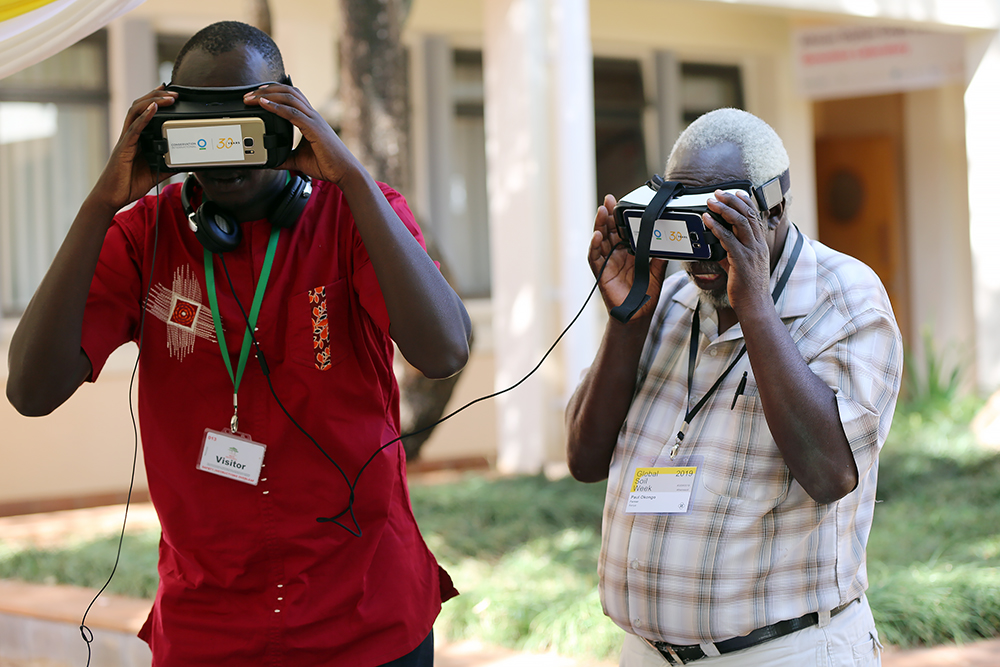
On Thursday morning, GSW 2019 participants held discussions in a “lab” format to review key lessons and strategies gathered over the previous three days and test them against the realities of day-to-day policy formulation and implementation.
On land governance, the discussions focused on innovations at both the legal and institutional level as well as emerging community-based models for safeguarding women’s rights to land. While noting the complexity of natural resource-based conflict, the discussions also touched on entry points for partners to contribute to locally-led dialogue processes, for example to negotiate agreements between farmers, pastoralists and other land users.
Discussing lessons from workshops focusing on extension, speakers highlighted the role of new technologies and farmer-to-farmer models in developing advisory services that are more cost-effective and better targeted to specific local contexts. Noting the scale of this challenge in a continent where extension budgets have been falling over time, one speaker stressed that what is needed is nothing less than transforming and modernizing agriculture and associated policies, noting that African farmers account for a significant part of the estimated 1.5 billion smallholder farmers worldwide, “the biggest workforce on our planet.”
With regard to local governance and new cooperation models, the Ecosystem Based Adaptation for Food Security Assembly, a pan-African platform that is coordinating and engaging key stakeholders and actors, was highlighted as a good practice in building partnerships to stimulate positive initiatives at the local level.
On finance and markets, the Land Degradation Neutrality (LDN) Fund, a partnership between the Global Mechanism of the UN Convention to Combat Desertification (UNCCD) and Mirova, an impact investment firm, was presented as an example of how to catalyze private resources to address land degradation. However, several speakers reiterated caution to safeguard the interests of farmers and pastoralists who may be vulnerable to “land grabbing” as a consequence of large-scale investment models.
A final panel discussion in the afternoon drew panelists from UNEP, the UN Framework Convention on Climate Change (UNFCCC), the African Land Policy Centre, UNCCD, Deutsche Gesellschaft für Internationale Zusammenarbeit (GIZ), Groupe de recherche et d'action sur le foncier (GRAF) and the African Union.
The discussions highlighted the importance of building the case that investing in nature-based solutions – such as facilitating access to voluntary carbon markets for farmers - makes sense from an ecososystem, livelihoods and financial perspective.
Looking ahead to preparations for the 14th session of the Conference of the Parties (COP 14) to the UNCCD, which takes place in India in September 2019, Johns Muleso Kharika, UNCCD Secretariat, stressed that LDN is the “integrator and accelerator of all SDGs.” He provided an overview of substantive issues that will be discussed at COP 14, including: land tenure; land and climate action; youth; gender; and sustainable livelihoods.
After thanking all participants and the many partners involved in the preparations for GSW 2019, Muller declared GSW 2019 closed at 4.05 pm.
+ Visit the web coverage for Thursday, 30 May 2019

IISD Reporting Services, through its ENB+ Meeting Coverage, provided daily web coverage from GSW 2019. In addition, IISD Reporting Services has published a summary report from the meeting, which is available in HTML and PDF.
Photos by IISD/ENB | Francis Dejon
For photo reprint permissions, please follow instructions at our Attribution Regulations for Meeting Photo Usage Page
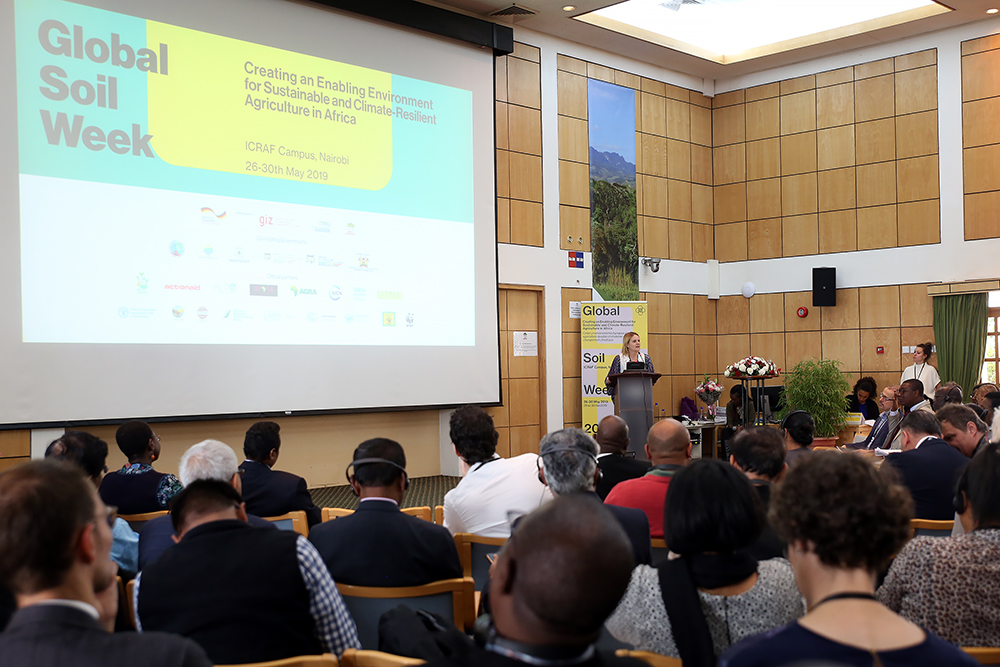
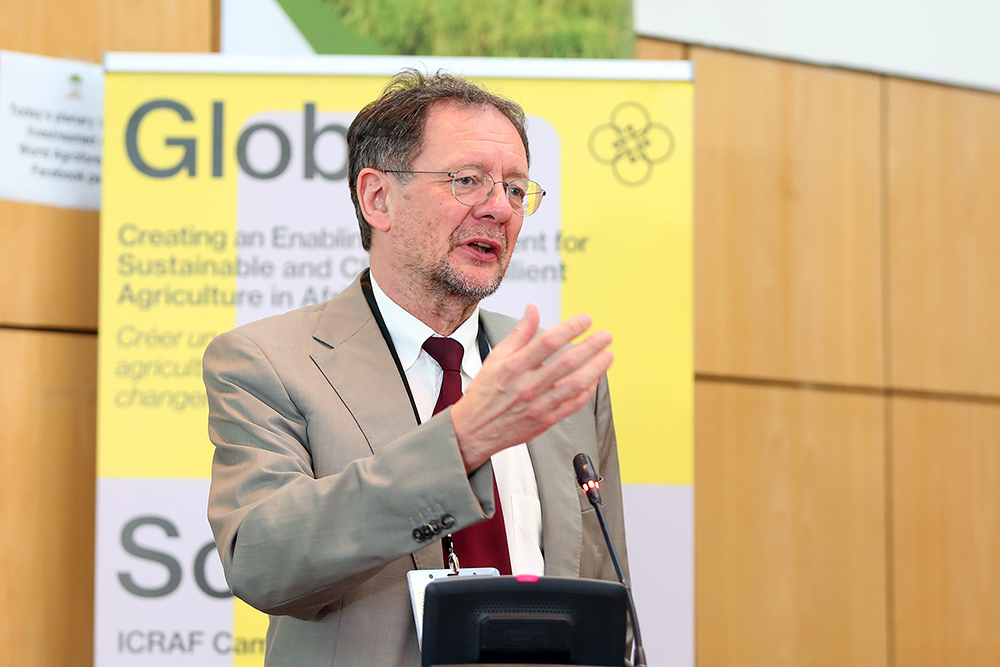
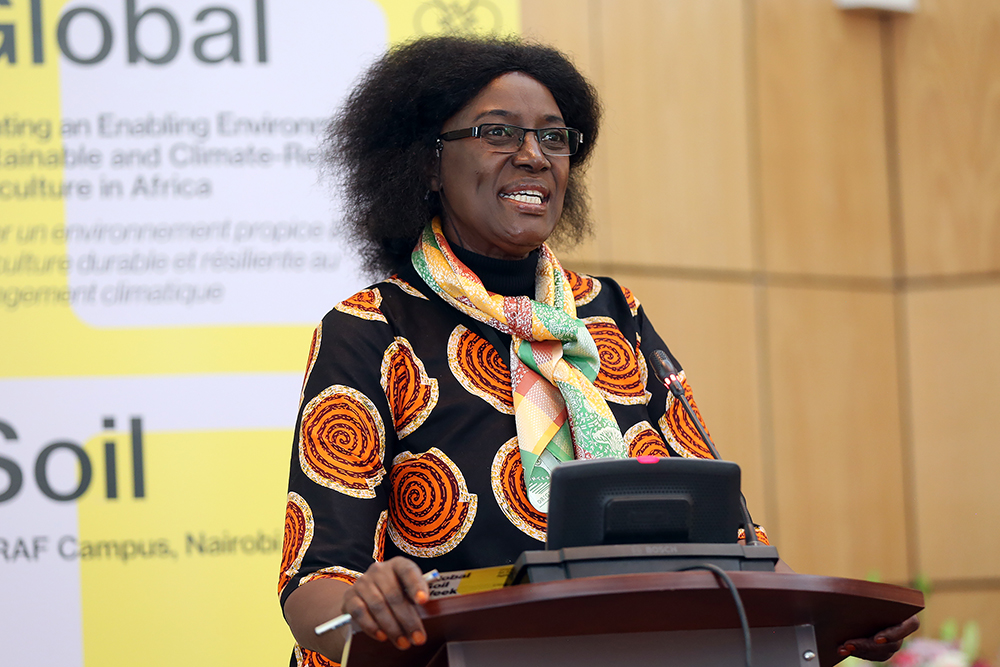
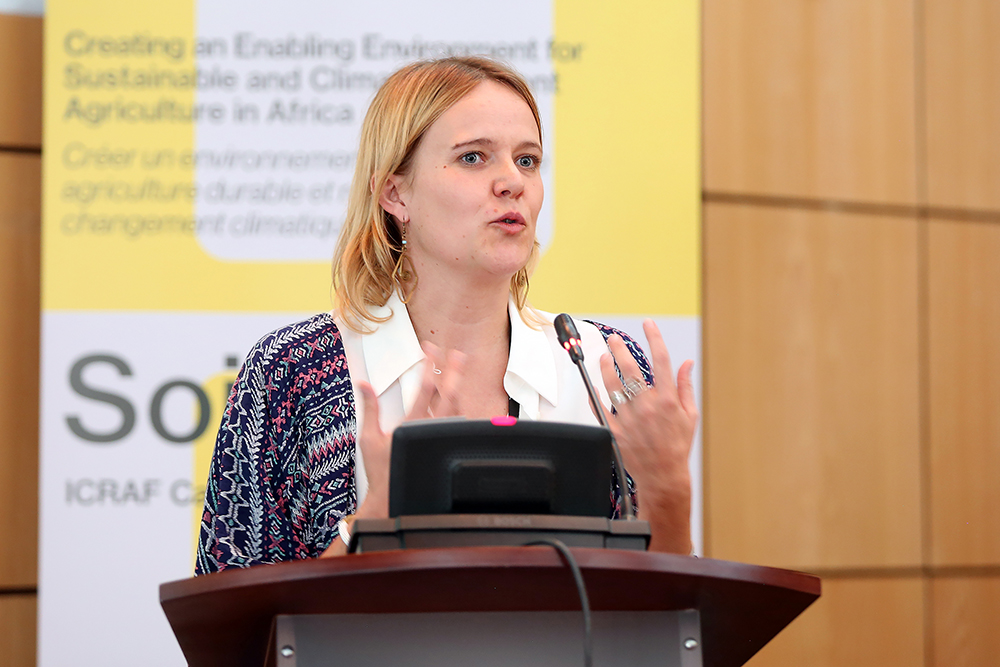
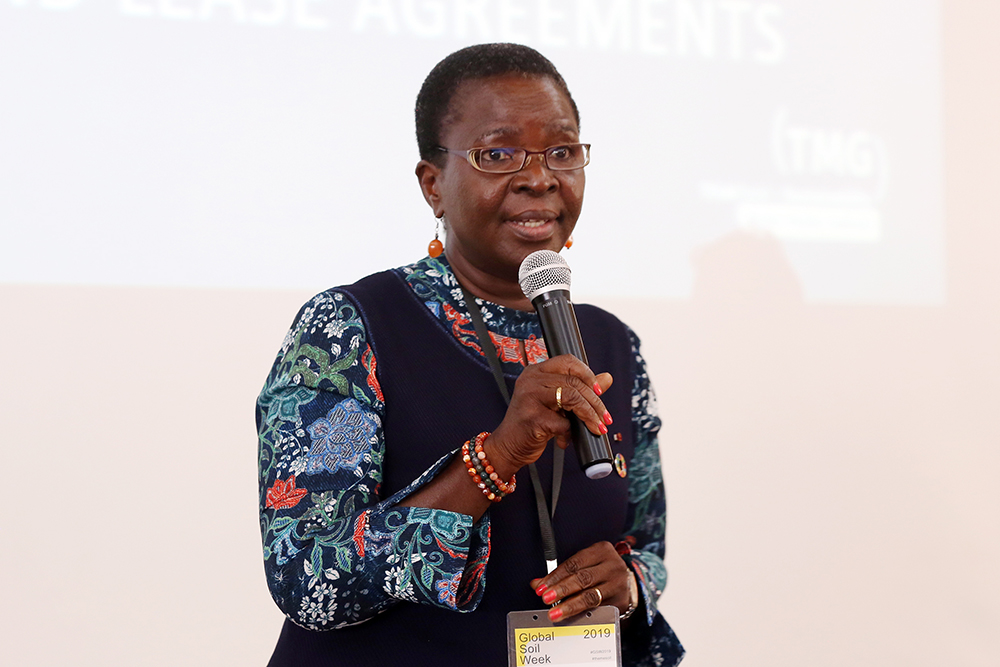
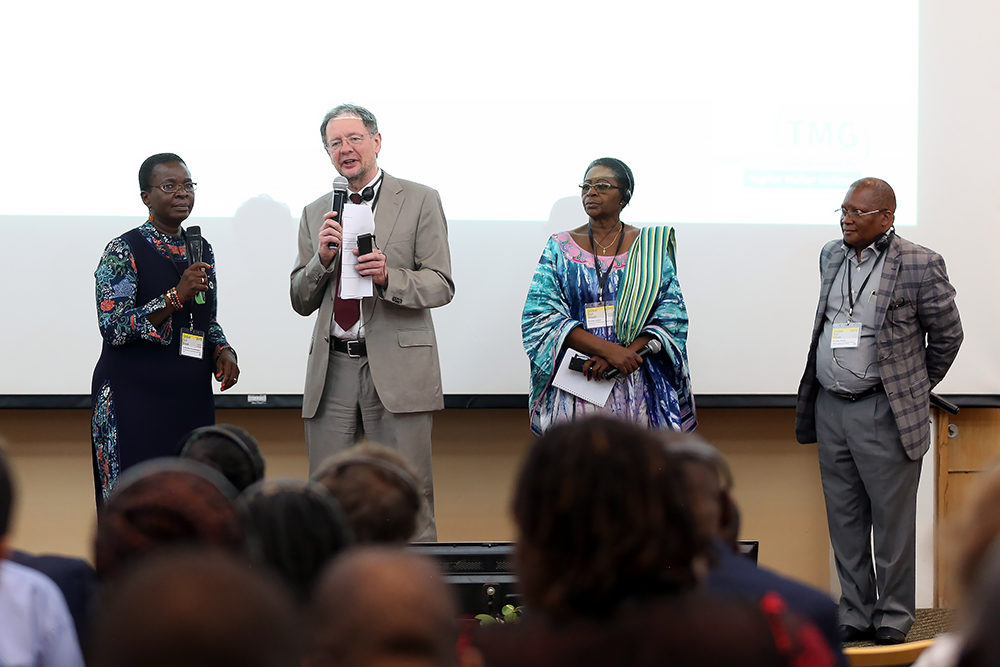
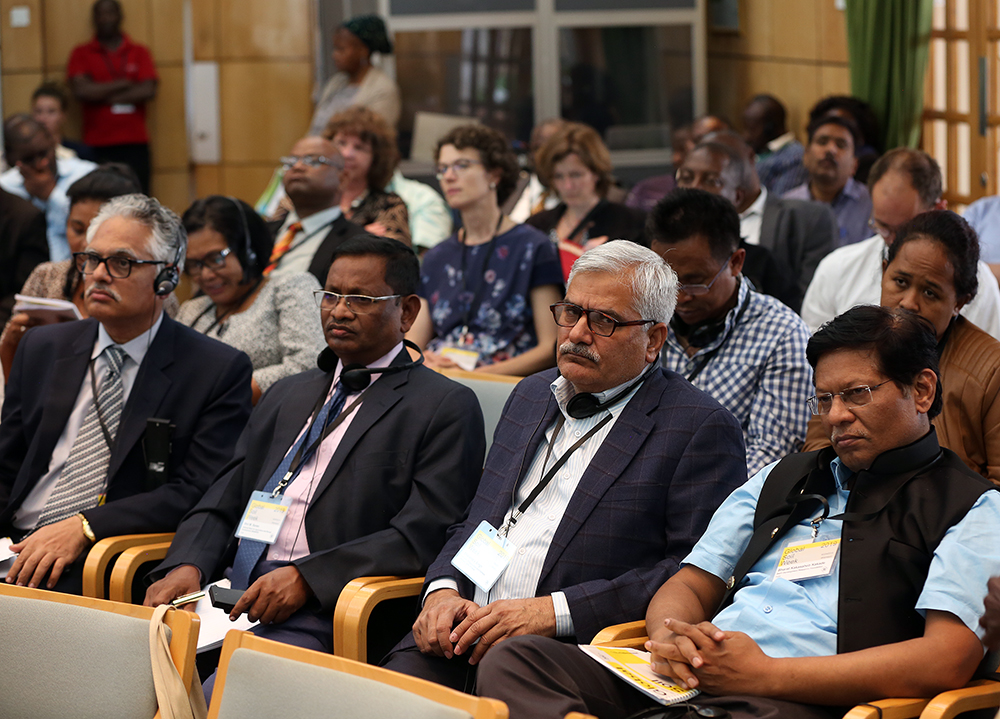
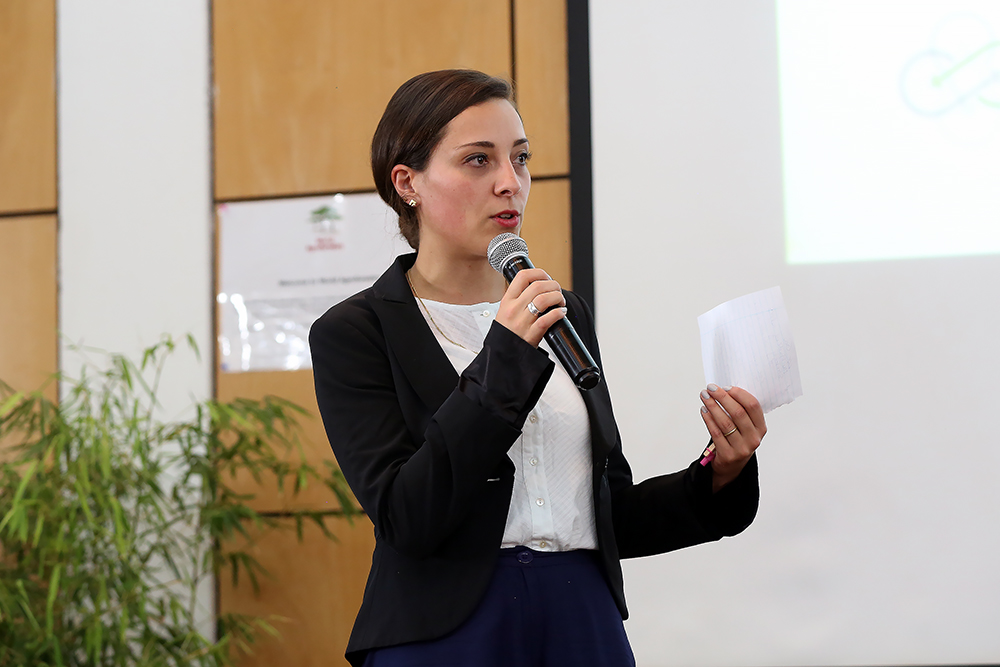
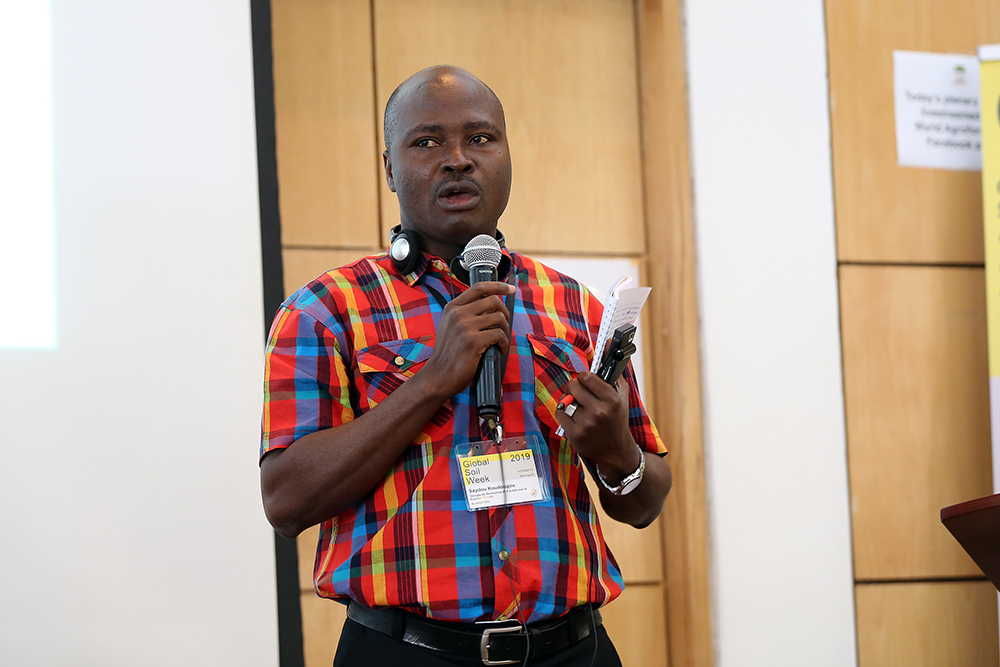
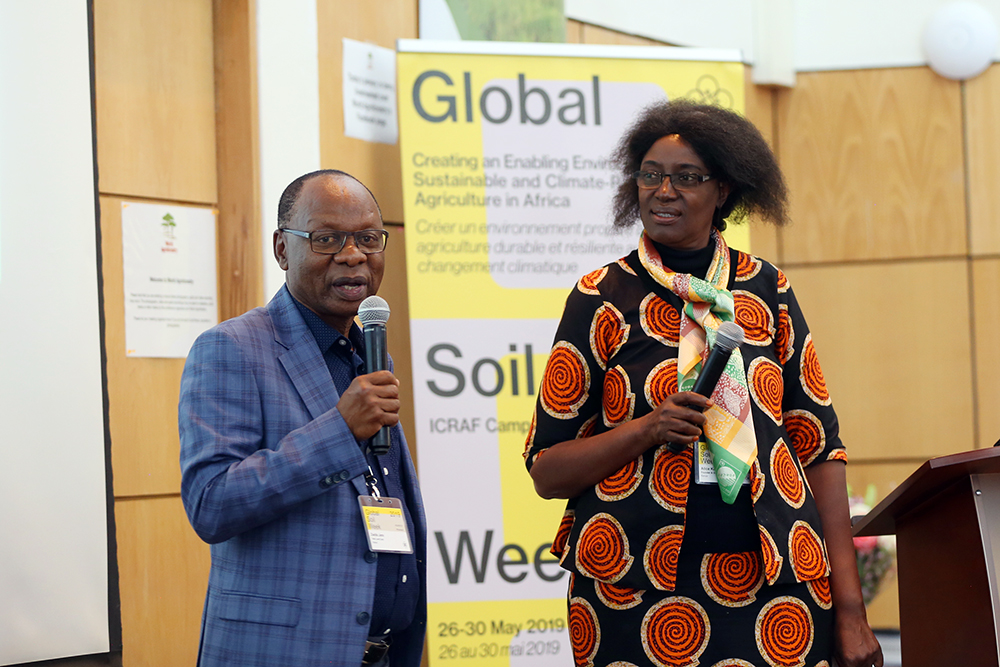
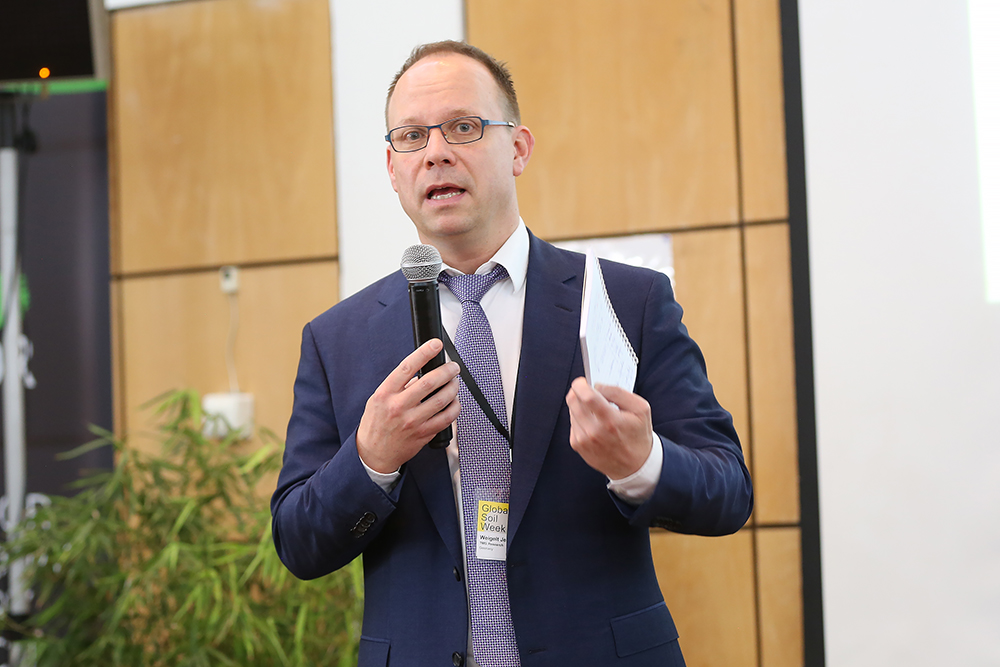
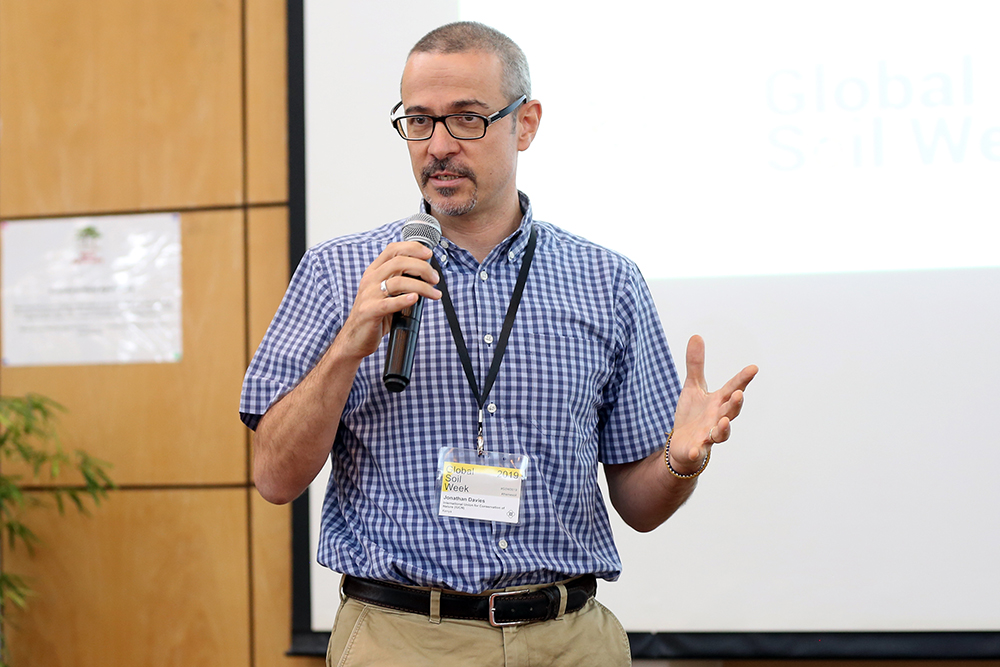
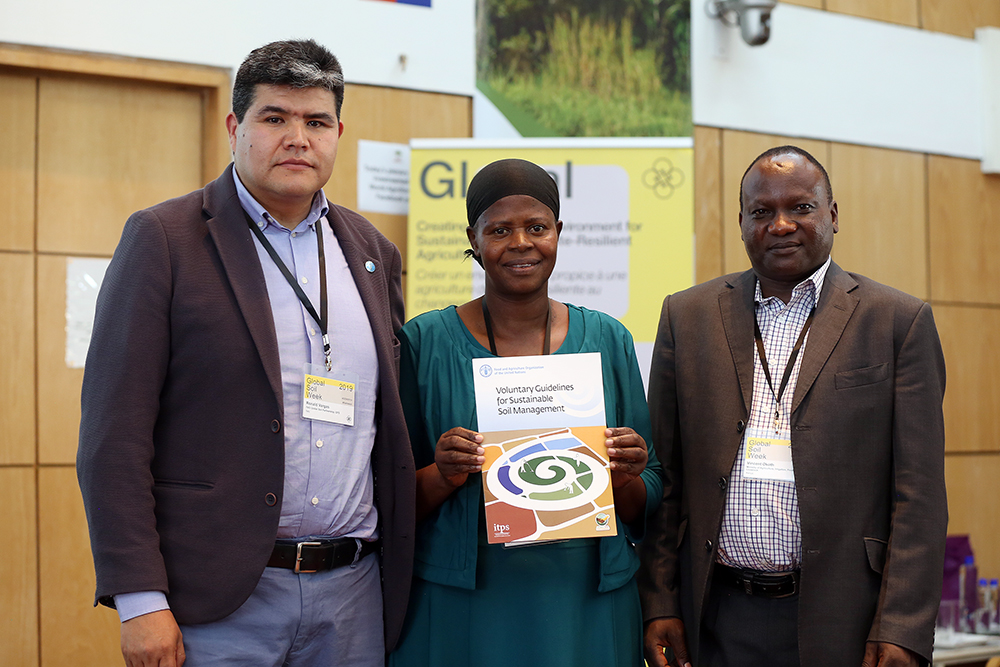
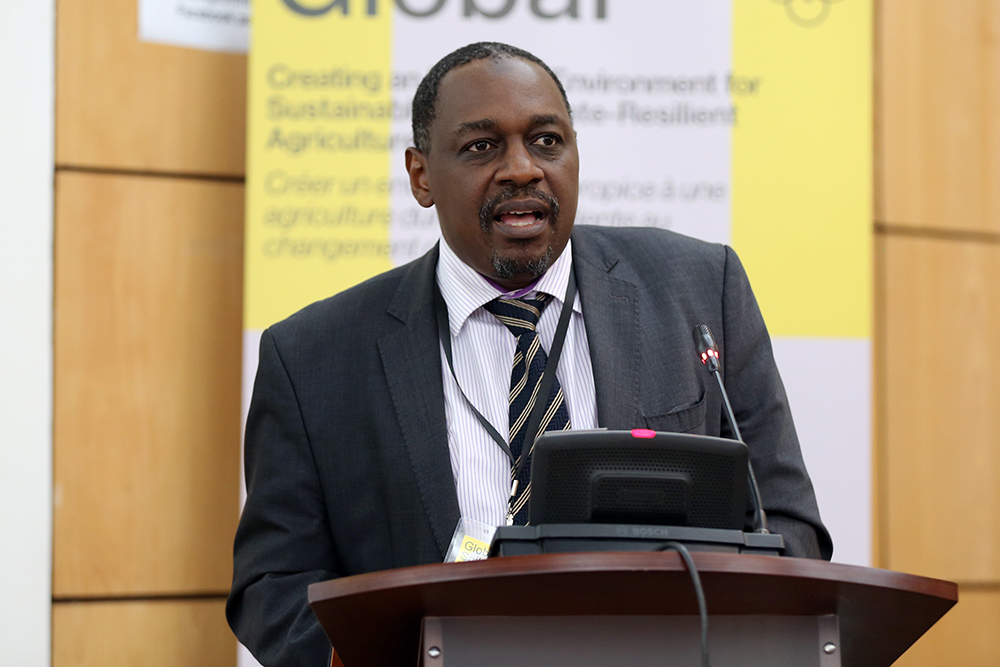
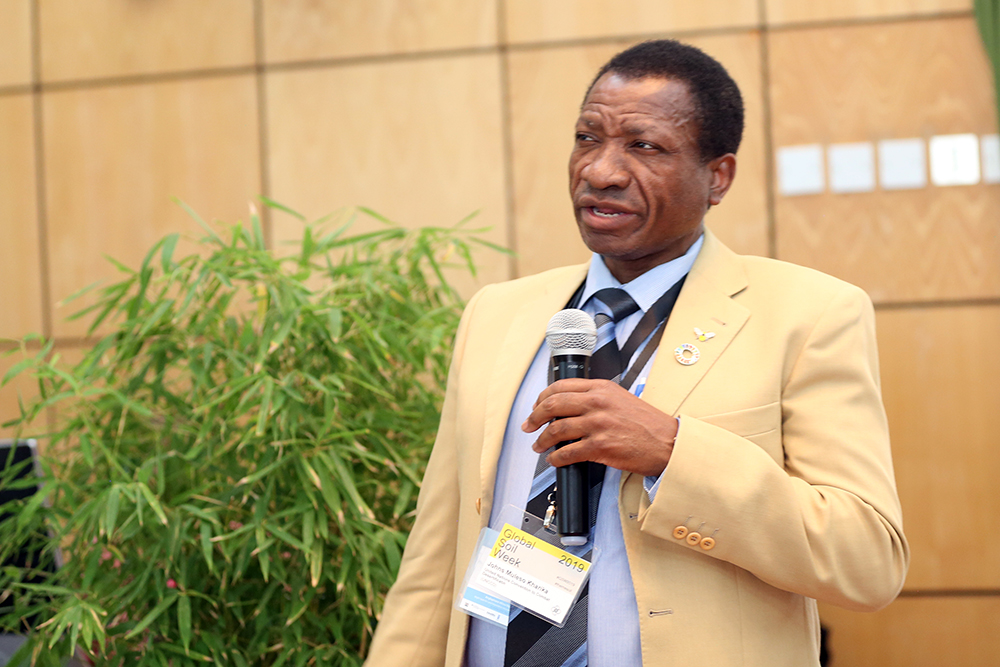
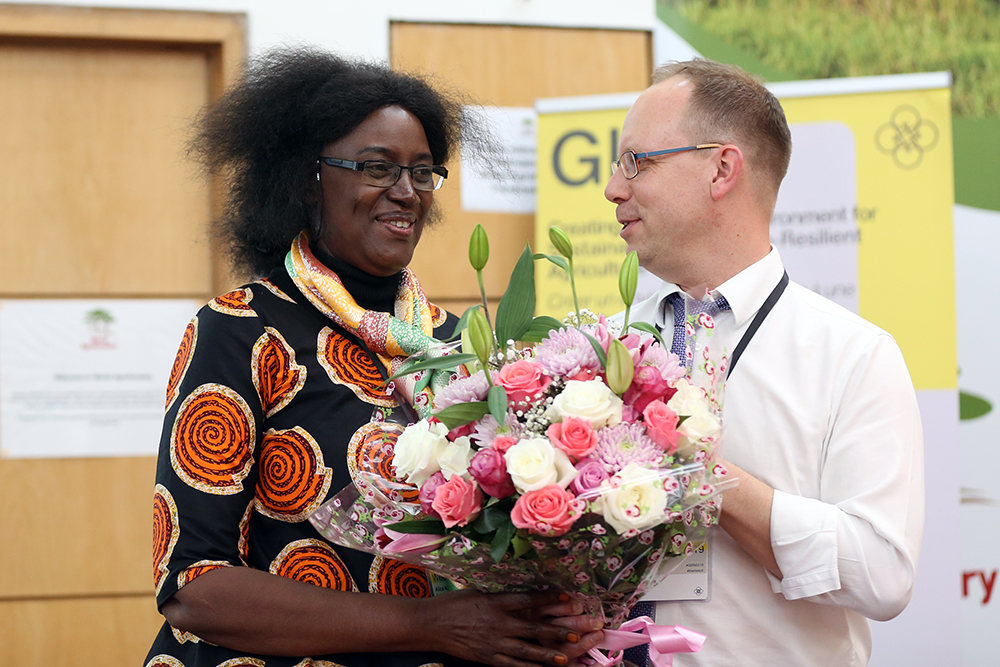
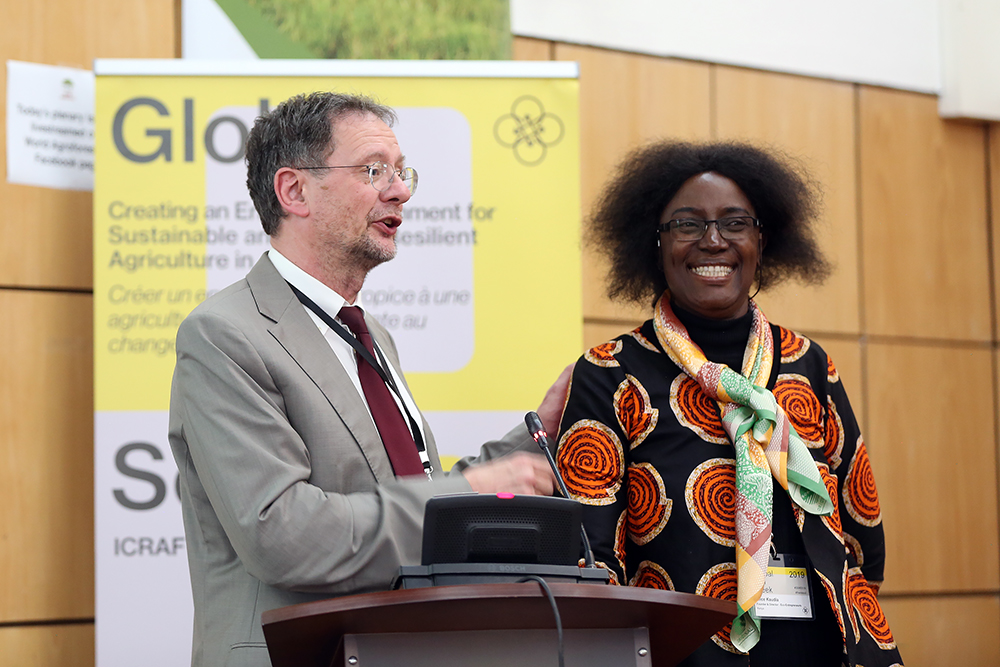
Highlights for Wednesday, 29 May 2019
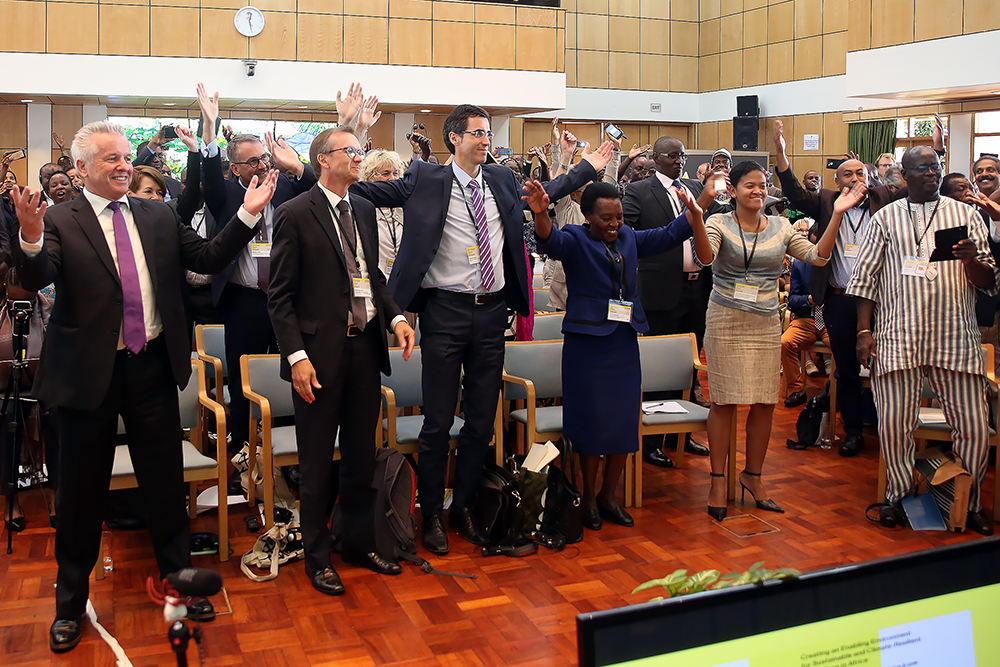
The High-Level Segment of Global Soil Week (GSW) 2019 opened on Wednesday morning. In her welcome remarks, Co-Facilitator Alice Kaudia remarked that “Africa’s soils are crumbling” and urged participants to accelerate sustainable land management (SLM) initiatives by drawing on opportunities highlighted during the technical segment of the conference.
Explaining the evolution of the GSW, Co-Facilitator Alexander Müller, proposed framing discussions around three “simple” questions: Why talk about soils? Where is the action? and What do we have to do to address the situation? Noting the paradox of rising hunger in some parts of the world while one-third of agricultural land globally “is used to produce food waste,” he stressed that achieving multiple benefits for every dollar invested for the Sustainable Development Goals (SDGs) will require integrated actions at the local level that link land restoration to food security, gender equality, climate resilience, sustainable livelihoods and other targets.
In his welcome remarks, Tony Simons, Director-General, World Agroforestry Centre (ICRAF), reiterated the economic and social value of soils, citing data which shows that the world loses 36 tons of soil each year due to erosion, equivalent to five times of Kenya’s GDP. He invited participants to recognize the urgency of land degradation while not losing sight of actions that are delivering positive impacts to both environment and livelihoods.
Ministers and high-level officials from Benin, Burkina Faso, Madagascar, Ethiopia, Kenya and Germany made opening statements. Lucy Njenga, speaking on behalf of Kenya’s Cabinet Secretary for Agriculture, Livestock, Fisheries and Irrigation, called on participants to use this forum to share experience in order to galvanize action at the local level that is in line with global commitments, moving into an inclusive and sustainable transformation. She then declared the High-Level Segment officially open.
Representing “voices from the ground,” several participants shared some takeaway messages from the first two days of the conference, including the importance of: focusing on women’s empowerment as managers of land and natural resources; providing farmer-friendly extension services; and making agriculture “cooler” in order to attract youth.
In the afternoon, participants met in four parallel peer-review workshops to examine conclusions and recommendations developed during the technical segment of the conference. Issues highlighted included: capacity building of local institutions and SLM champions; involvement of stakeholders at all levels to mainstream SLM practices into policies and programmes; and the inclusion of SLM in local development plans to improve decentralized extension services.
The discussions also made recommendations on concrete actions that can be implemented at different levels, such as: identifying key actors to deliver awareness raising programmes; creating multi-stakeholder platforms to facilitate meaningful consultations between communities, legal entities and other governance institutions; and building the capacity of local organizations to undertake evidence-based research to inform higher-level policy making.
Concurrent to the workshops, representatives of the partner governments and other stakeholders met to review a draft text containing conclusions by the GSW 2019 Co-Hosts.
+ Visit the web coverage for Wednesday, 29 May 2019
Photos by IISD/ENB | Francis Dejon
For photo reprint permissions, please follow instructions at our Attribution Regulations for Meeting Photo Usage Page
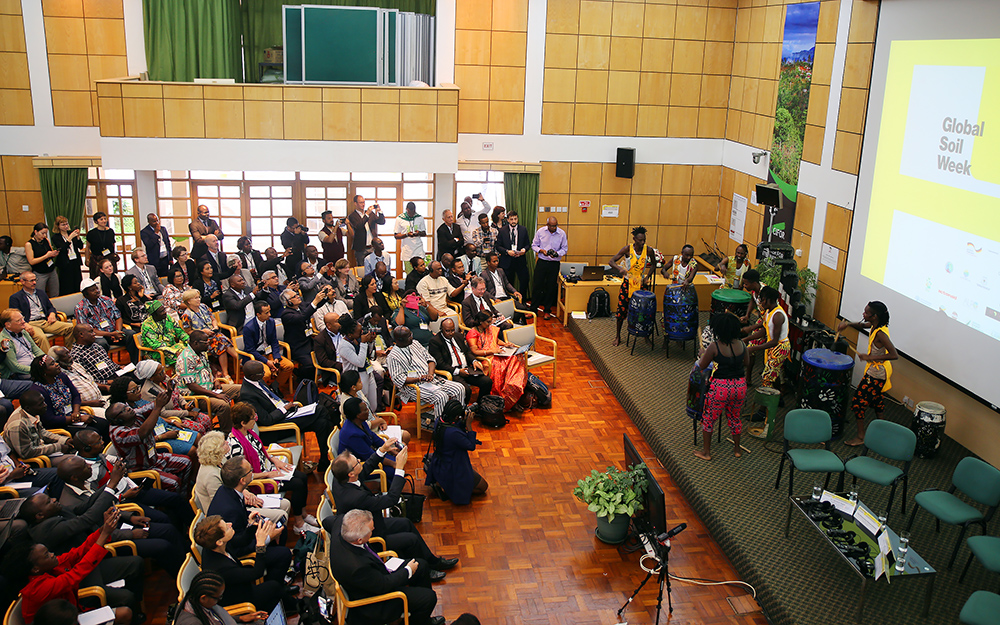
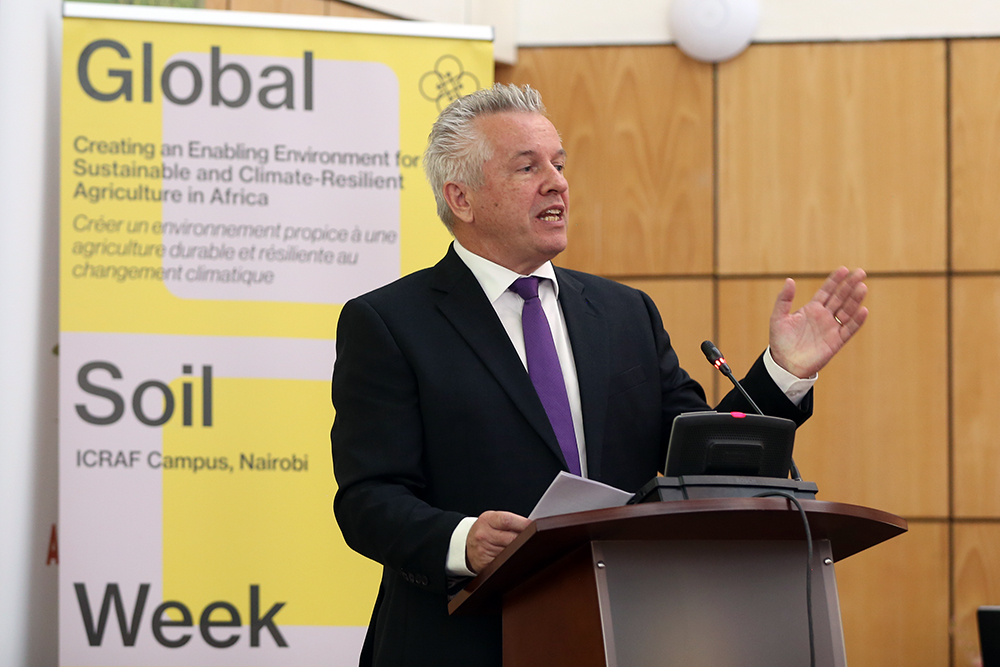
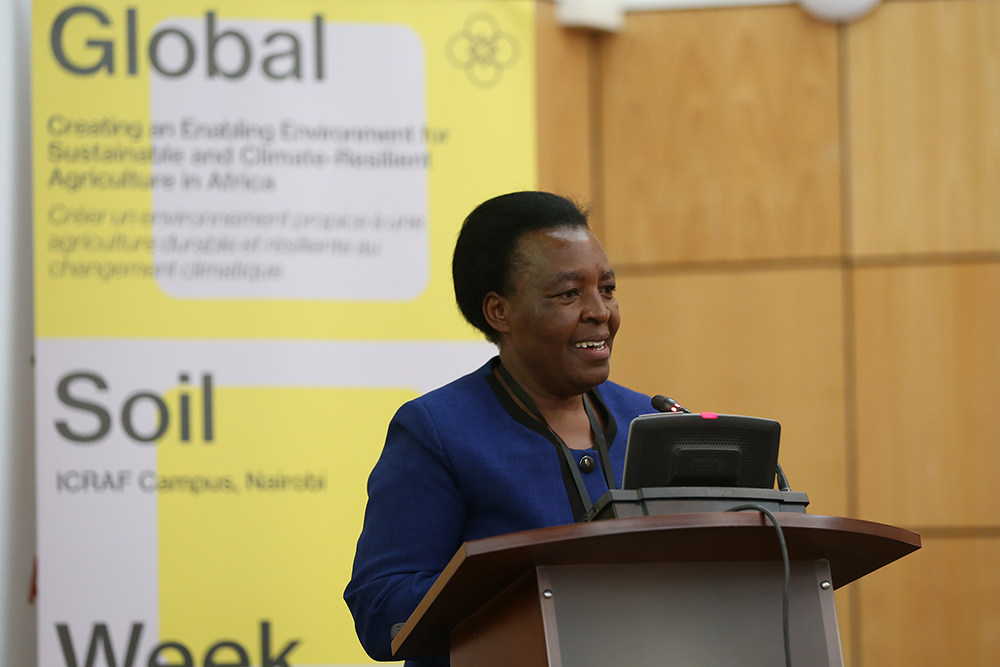
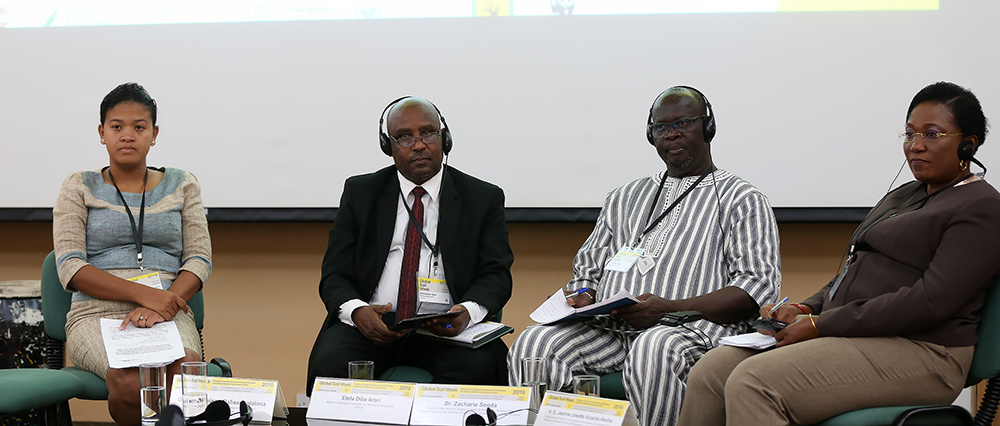

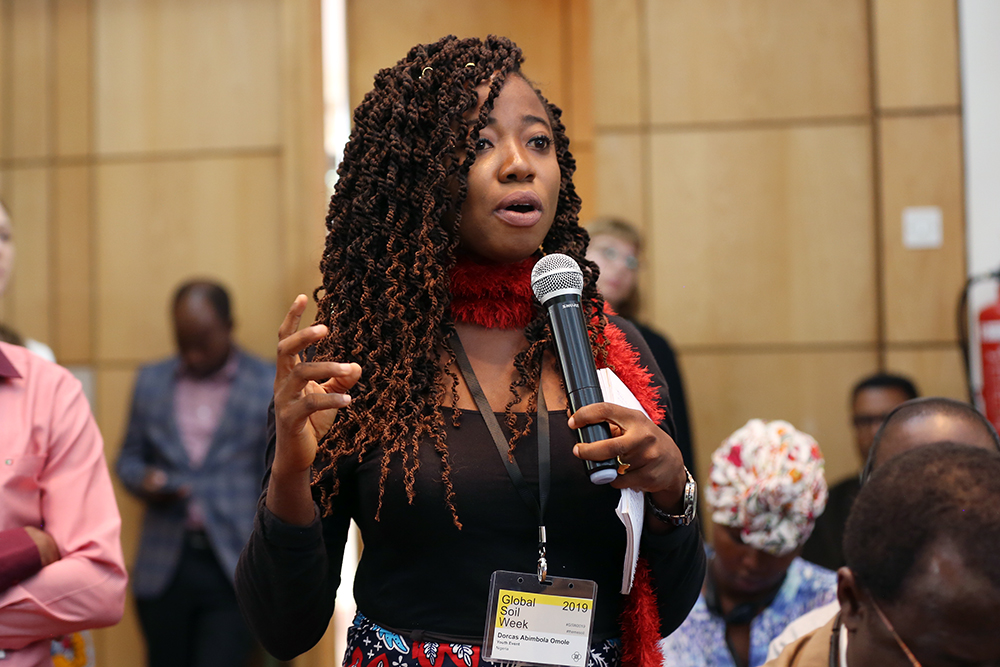
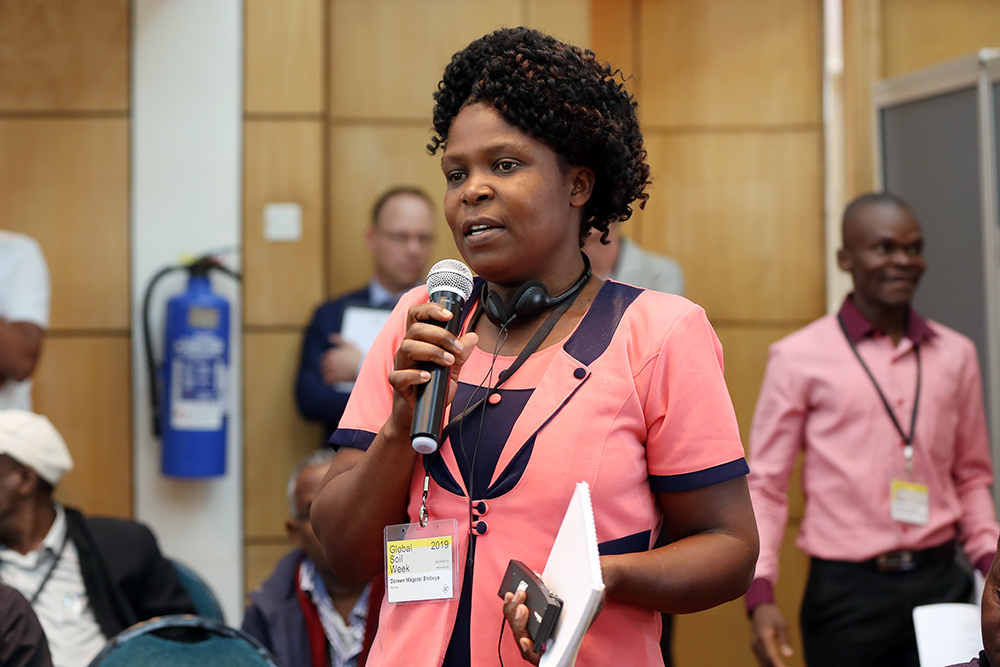
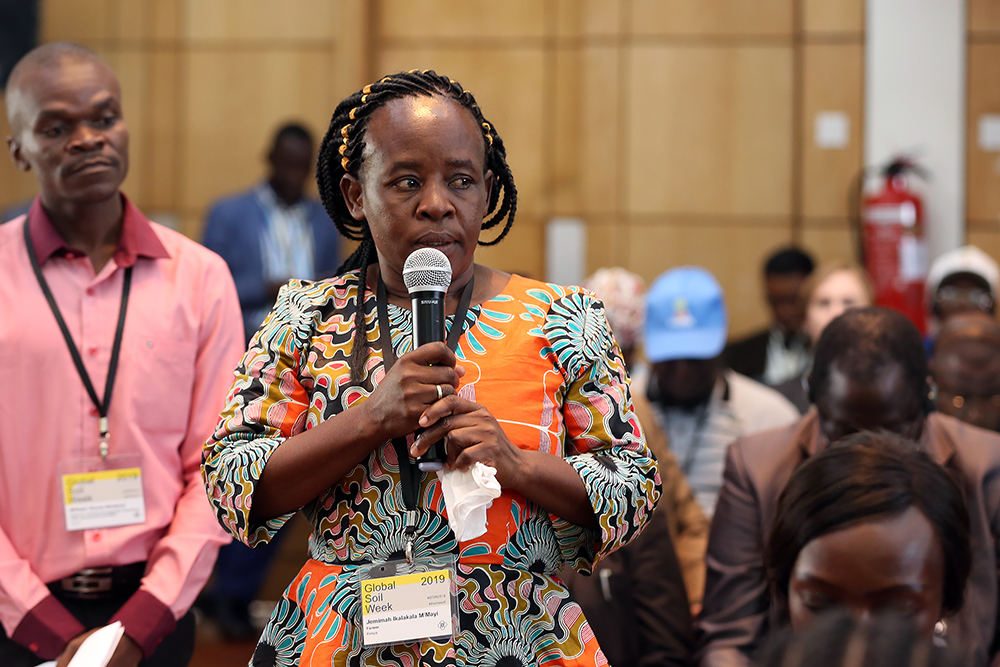
Photos from the GSW Market Place





Highlights for Tuesday, 28 May 2019
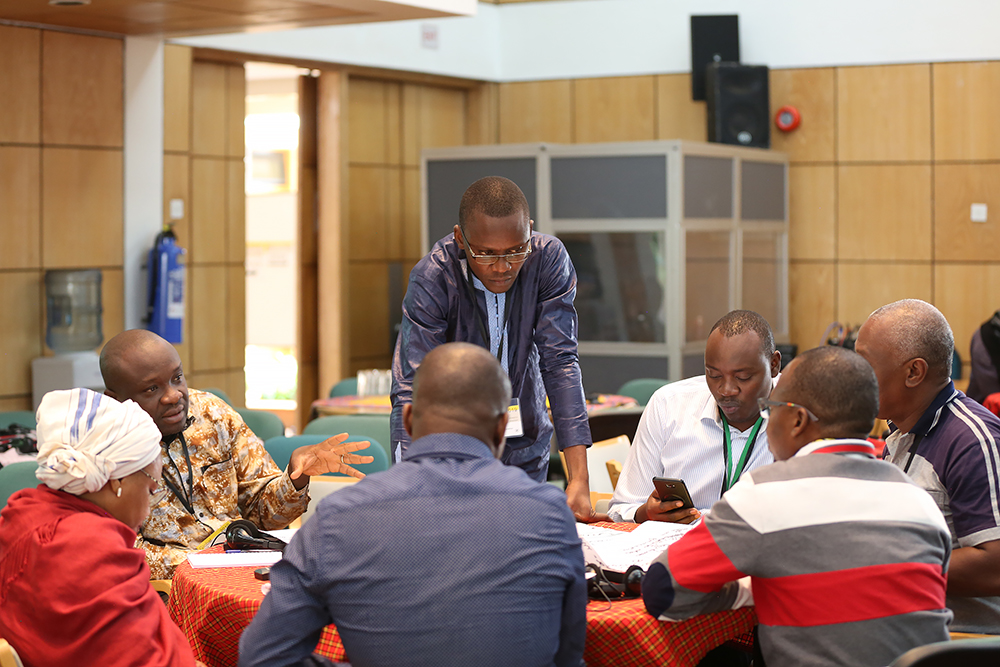
On the second day of Global Soil Week (GSW) 2019 - and final day of the technical segment - discussions focused on synthesizing insights from more than 20 country case studies discussed on the previous day. Gathering in four parallel “Dimension Workshops,” participants identified broader lessons and strategies for achieving an enabling environment for sustainable and climate resilient agriculture, clustered around the thematic strands: land governance; extension and advisory services; local governance and cooperation models; and finance and markets.
In the workshop on land governance, participants underscored that guaranteeing women’s access to and ownership of land and other productive resources is a critical “enabler” for sustainable land management. The group further noted that securing land tenure rights not only requires building advocacy movements on land rights from the ground up, but also following through to ensure that gains are formalized into legislative frameworks and subsequently enforced.
Among numerous lessons highlighted in the workshop on extension and advisory services, participants emphasized the need to “localize” the delivery of extension services, for example through the active involvement of farmer-to-farmer knowledge sharing, research, and innovation. Discussing strategies for upscaling promising approaches, they stressed the need to integrate extension systems into national and sub-national development plans, with a dedicated budget to facilitate implementation.
The discussions on local governance identified various strategies for strengthening inclusive governance structures, including through: pooling of resources by communities via collective funds; exploring alternative governance structures to involve civil society organizations and other stakeholders; and providing space for local innovators.
During the session on finance and markets, participants outlined diverse strategies for fostering access to sustainable finance, including through collaborative mechanisms such as farmers’ cooperatives and communal models for benefit sharing. On markets, the group noted the importance of developing sustainable value chains and nurturing niche markets that favor sustainably produced agricultural products.
During a wrap up plenary session, GSW 2019 Co-Facilitator Alexander Müller, Töpfer, Müller, Gaßner — Think Tank for Sustainability (TMG Research) remarked that "projects never fail but projects never scale.” He noted that by exploring an enabling environment for responsible land governance, the conference is digging deeper into how to “do projects differently” so as to bridge the huge gap that exists between the Sustainable Development Goals and action on the ground.
Closing the technical segment, Alice Kaudia remarked that the two days of discussions had generated important knowledge and take-home messages. She encouraged the leaders arriving for the High-Level Segment to pick up on these insights and apply them by creating an enabling environment in their countries.
+ Visit the web coverage for Tuesday, 28 May 2019
Photos by IISD/ENB | Francis Dejon
For photo reprint permissions, please follow instructions at our Attribution Regulations for Meeting Photo Usage Page
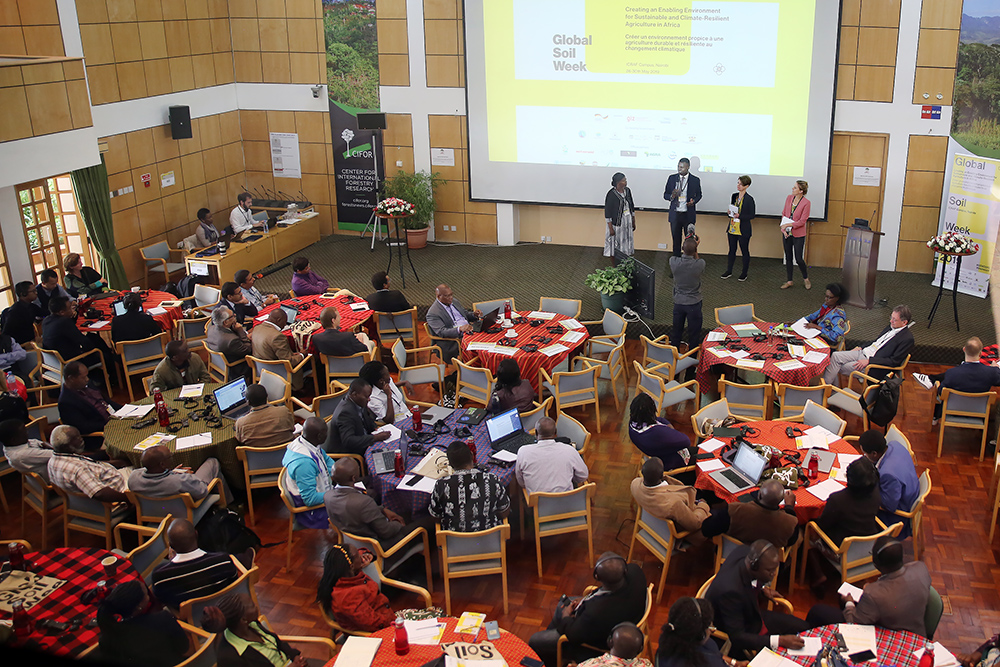
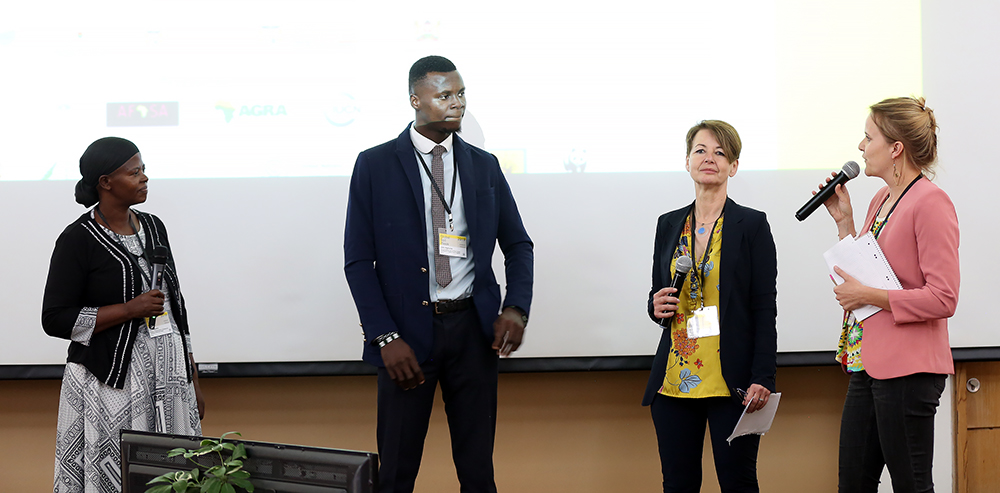

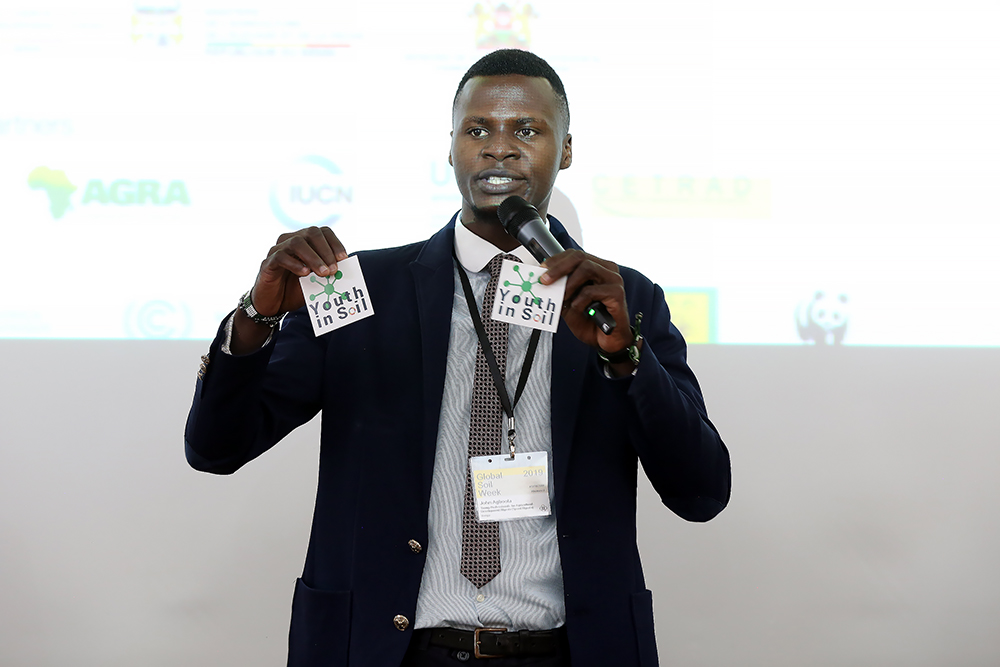
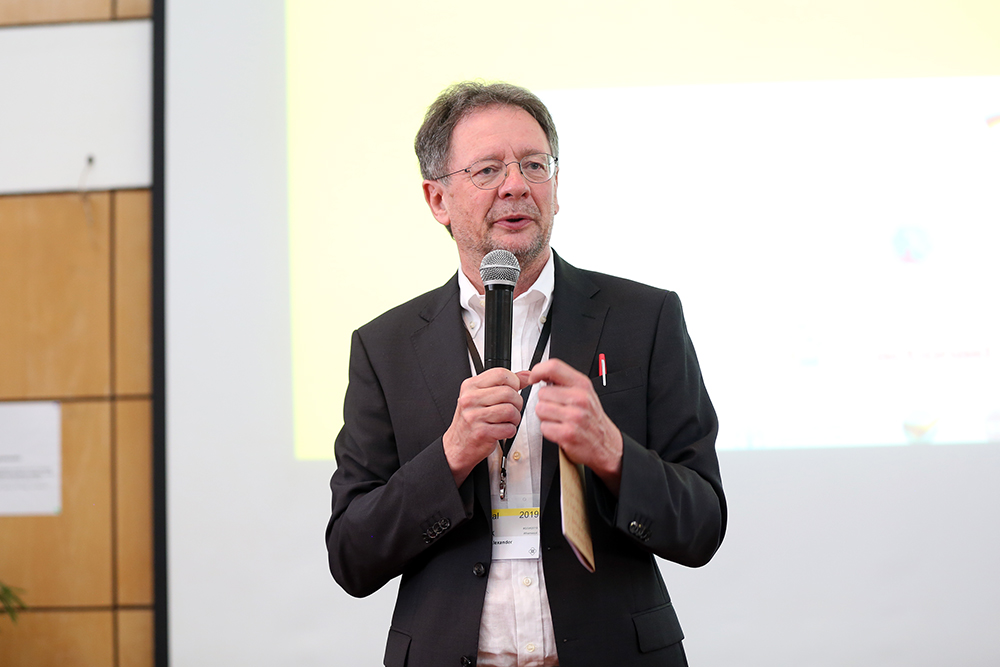
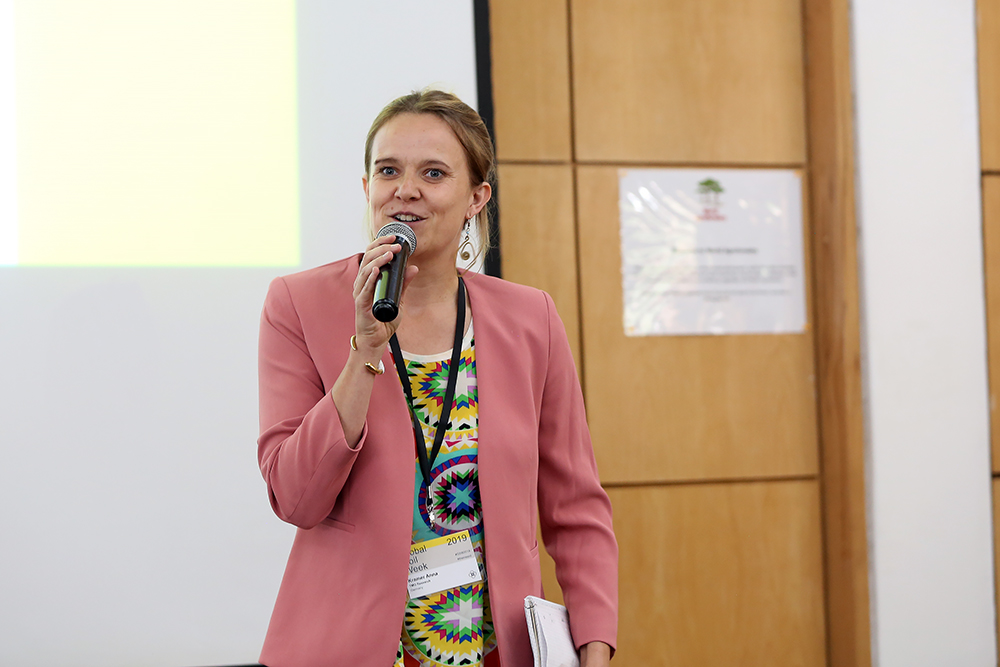
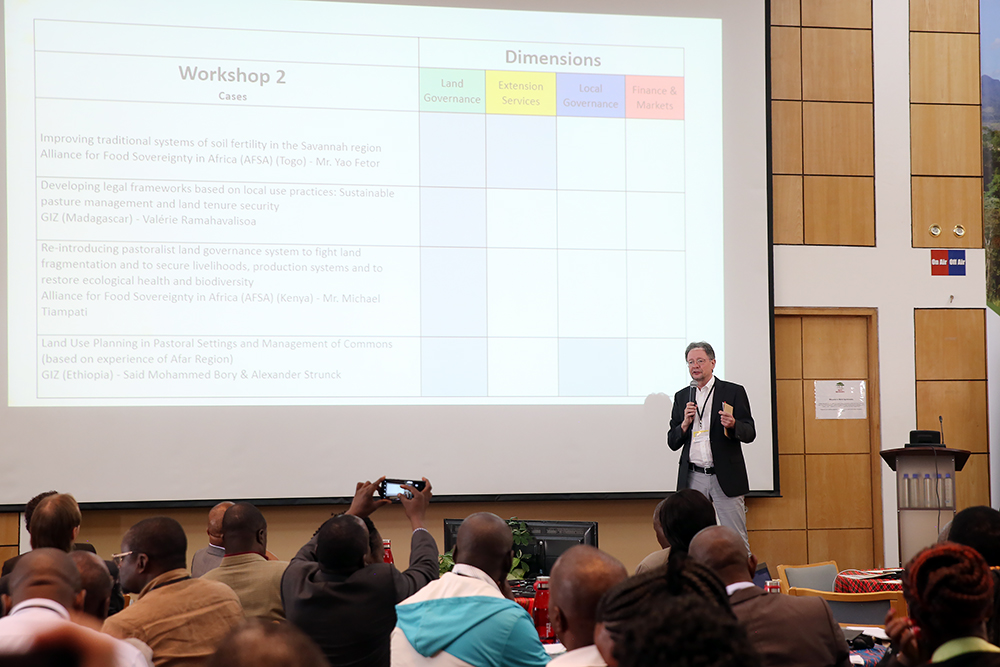
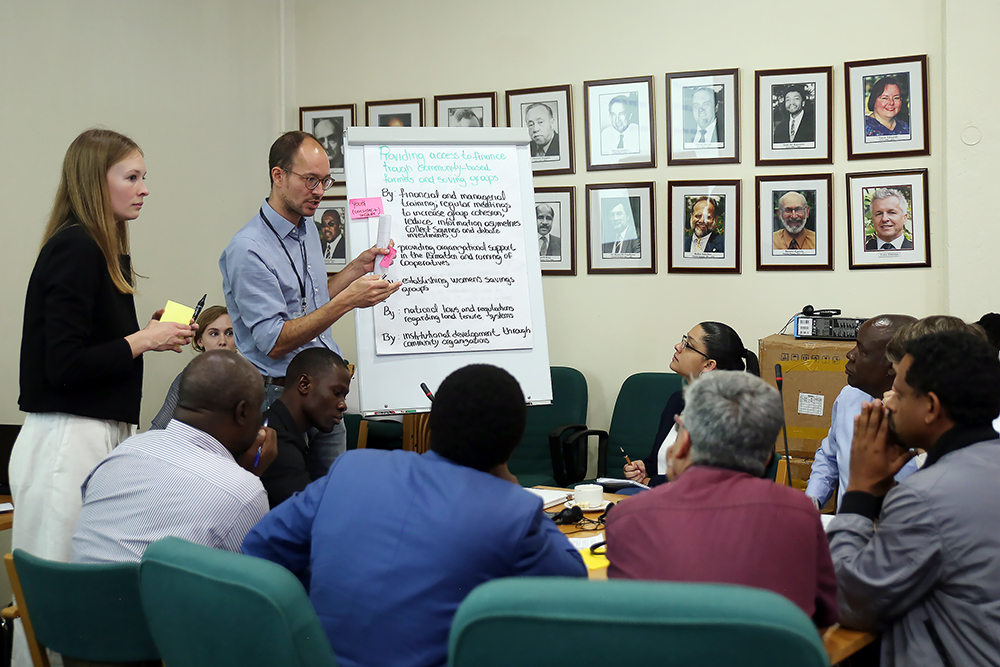
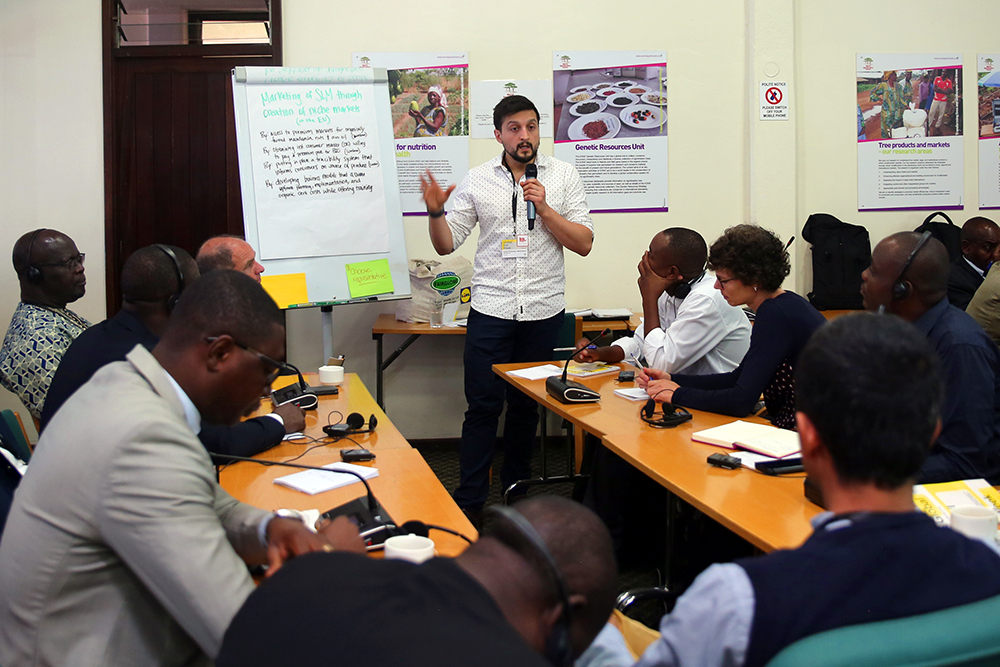
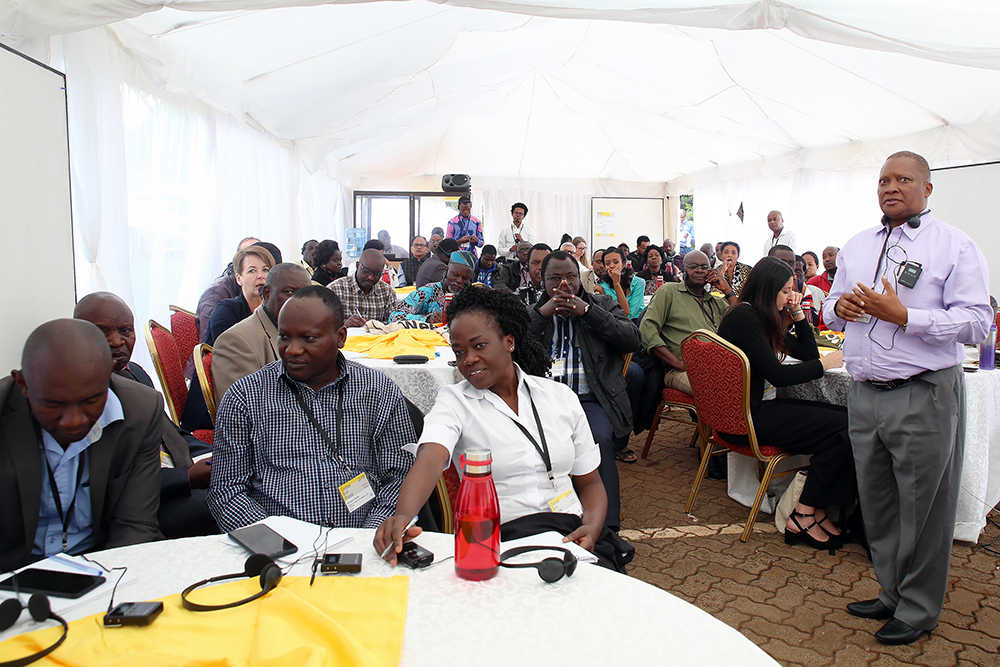
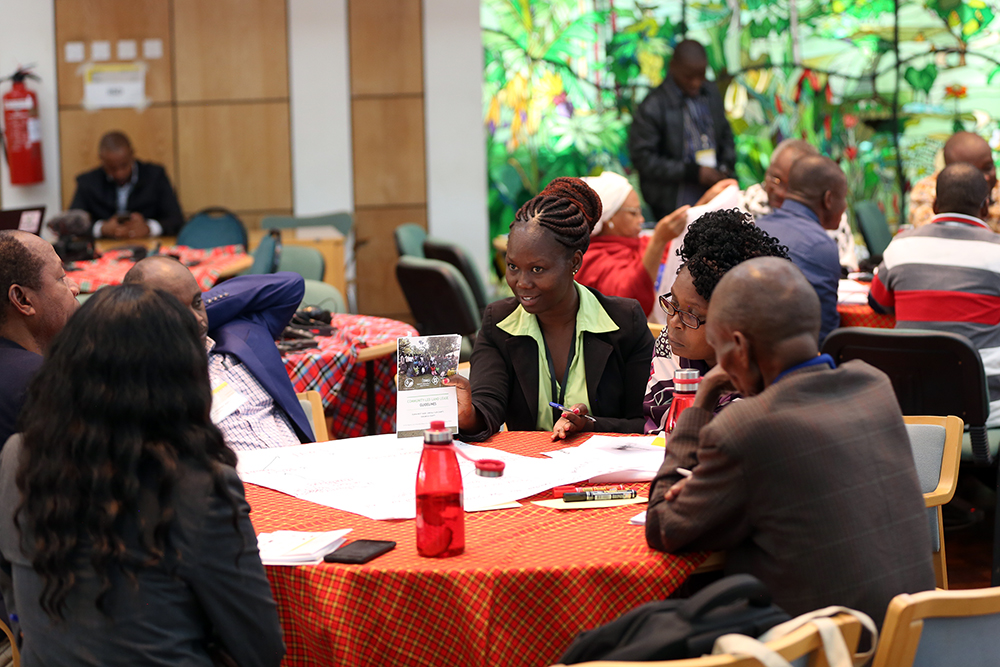
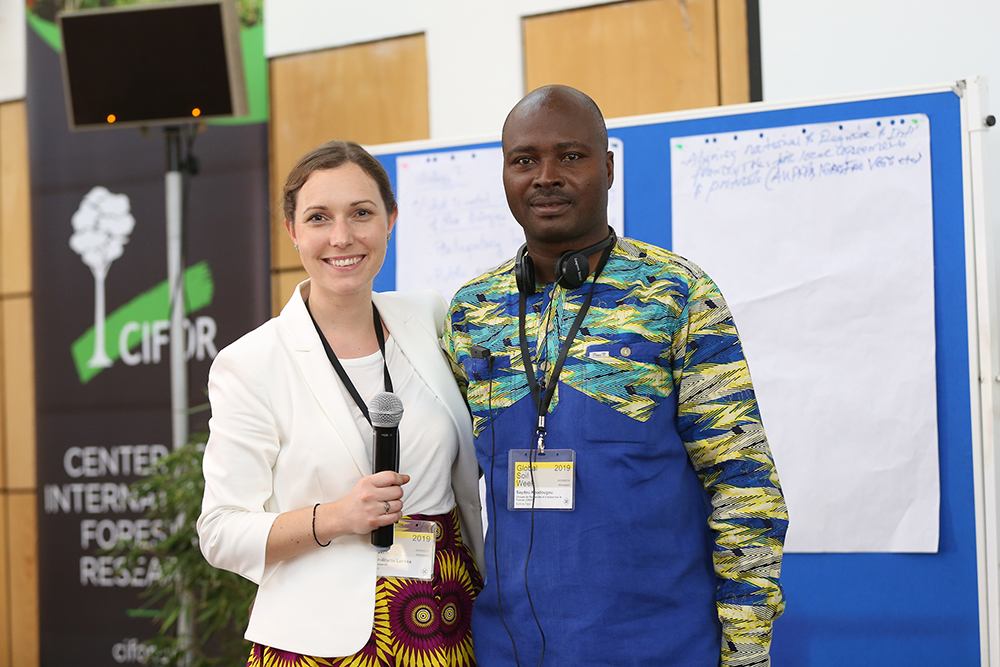
Highlights for Monday, 27 May 2019
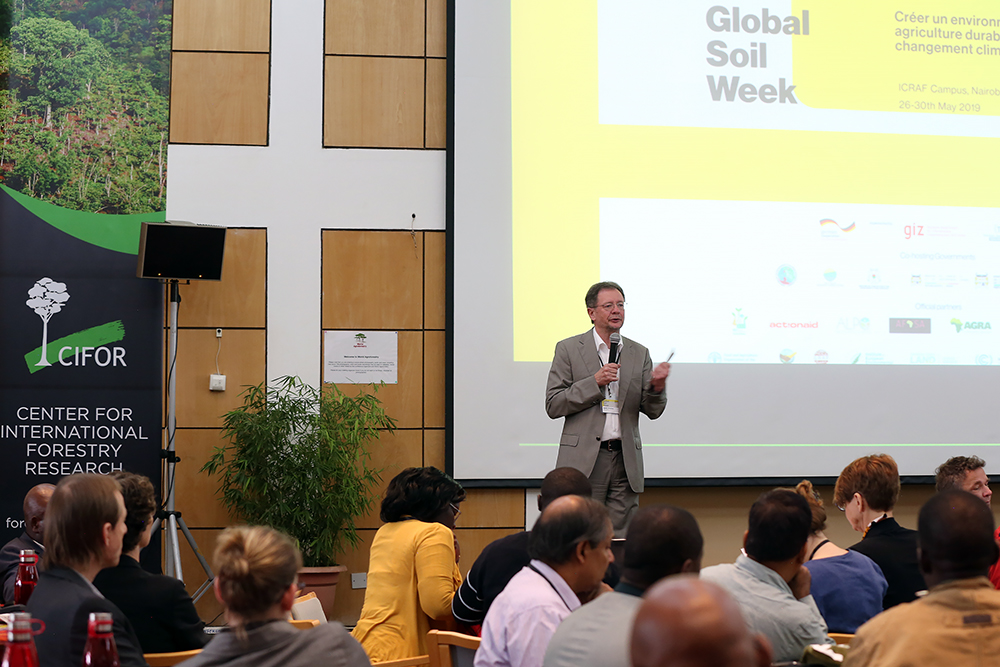
Global Soil Week 2019 (GSW 2019) opened on Monday morning, 27 May, with the two-day technical segment of the conference. During the opening plenary, Co-Facilitators Alice Kaudia, Co-Founder and Executive Director, Eco-Entrepreneurs Ltd., and Alexander Alexander Müller, Töpfer, Müller, Gaßner — Think Tank for Sustainability (TMG Research), welcomed representatives from government, science, NGOs, and international organizations, as well as farmers, and introduced the conference theme, ‘Creating an Enabling Environment for Sustainable and Climate Resilient Agriculture in Africa.’
Explaining the rationale for the conference, Müller observed that four years after the adoption of the Paris Agreement and the 2030 Agenda for Sustainable Development, the world is still not on track to achieve these ambitious global targets. He noted that discussions at GSW 2019 would seek to explore the “missing middle” that is critical for delivering the Global Goals, including access to finance and legislative and governance frameworks that ensure secure access to land, productive resources and decision making processes, especially for women and other marginalized actors at the local level.
Participants then convened in five working groups for the rest of the day to discuss experiences from more than 20 local projects in Africa and Asia. The discussions took an in-depth look at some of the factors that support or hinder the creation of an enabling environment for sustainable and climate-resilient agriculture
Some of the broad themes addressed in the presentations included:
• Good practices to empower women’s participation in sustainable land management and decision-making;
• Innovative approaches to secure smallholder farmers' access to land, finance and other agricultural inputs;
• Business models to strengthen financial and market inclusion for smallholder farmers and pastoralists;
• Opportunities to strengthen participatory governance systems for sustainable soil management and ecosystem restoration;
• Mechanisms for bridging macro- and micro-level land governance structures; and
• How to ensure sustainability of promising local initiatives.
+ Visit the web coverage for Monday, 27 May 2019
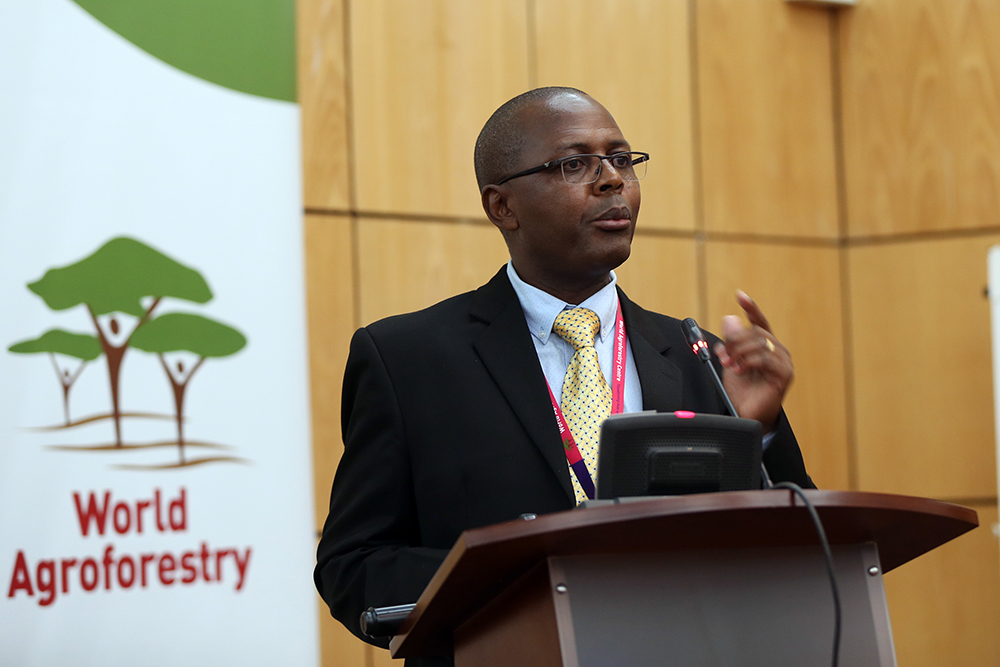
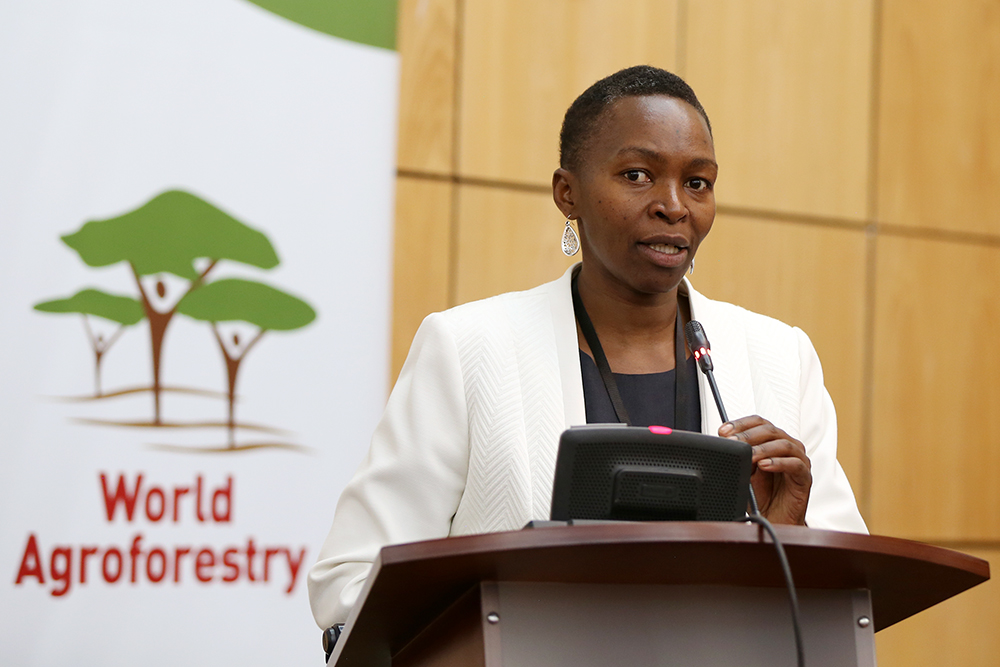
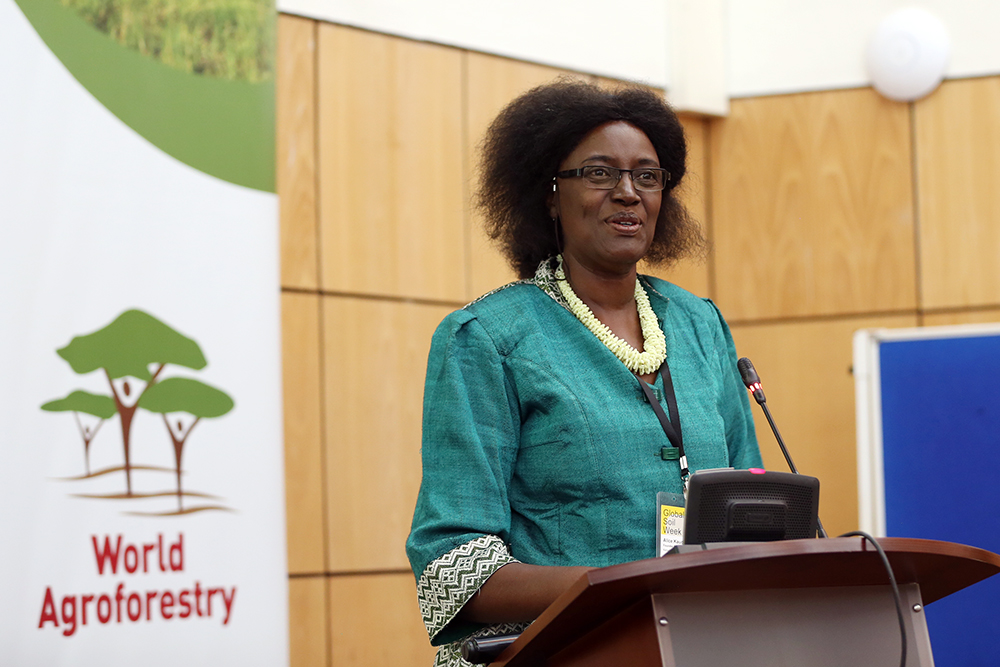
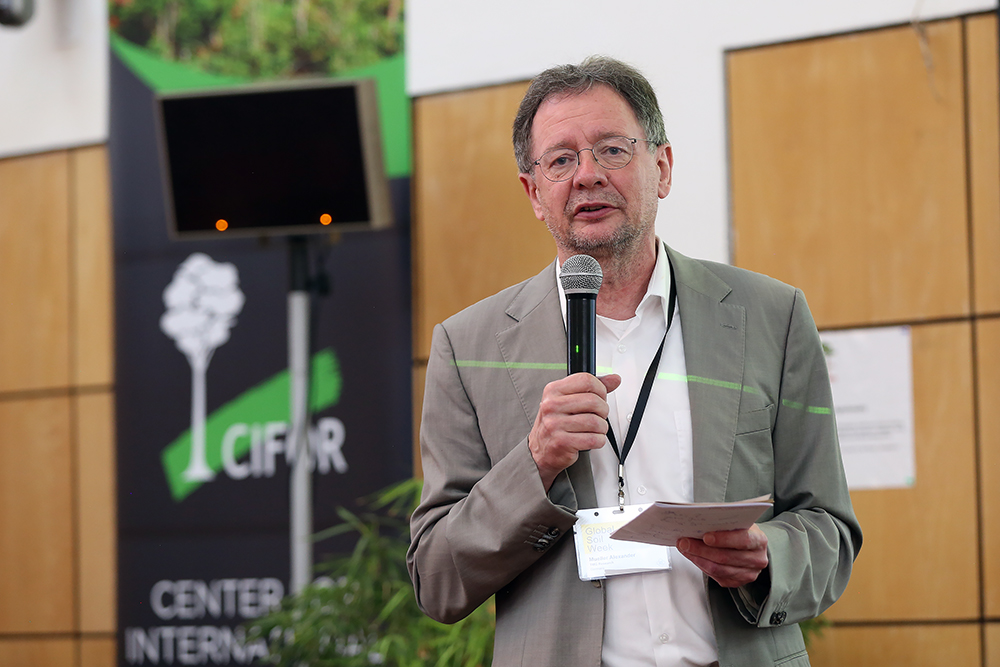
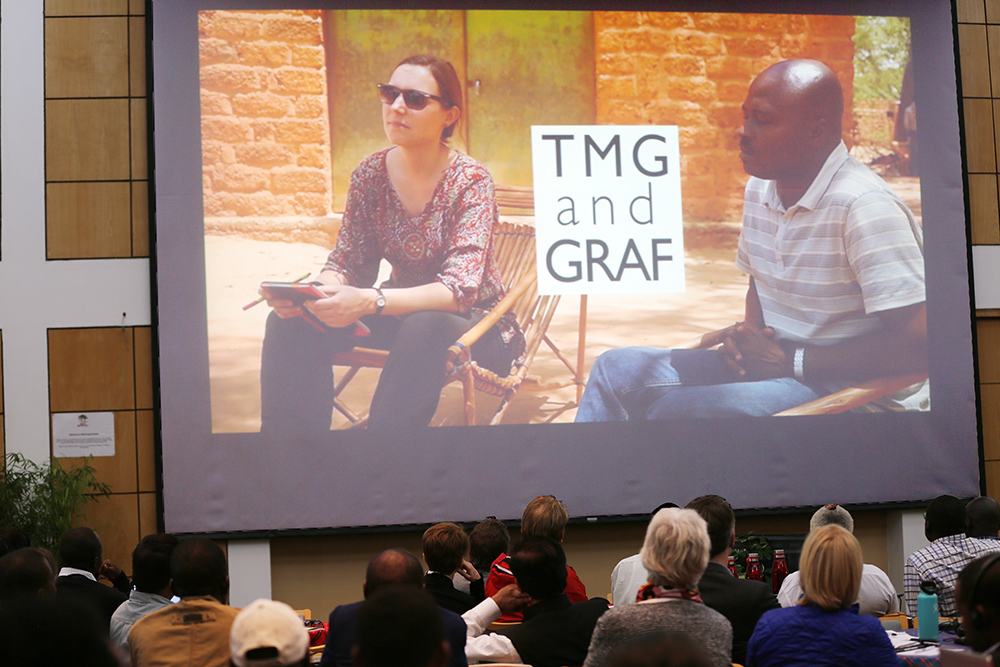
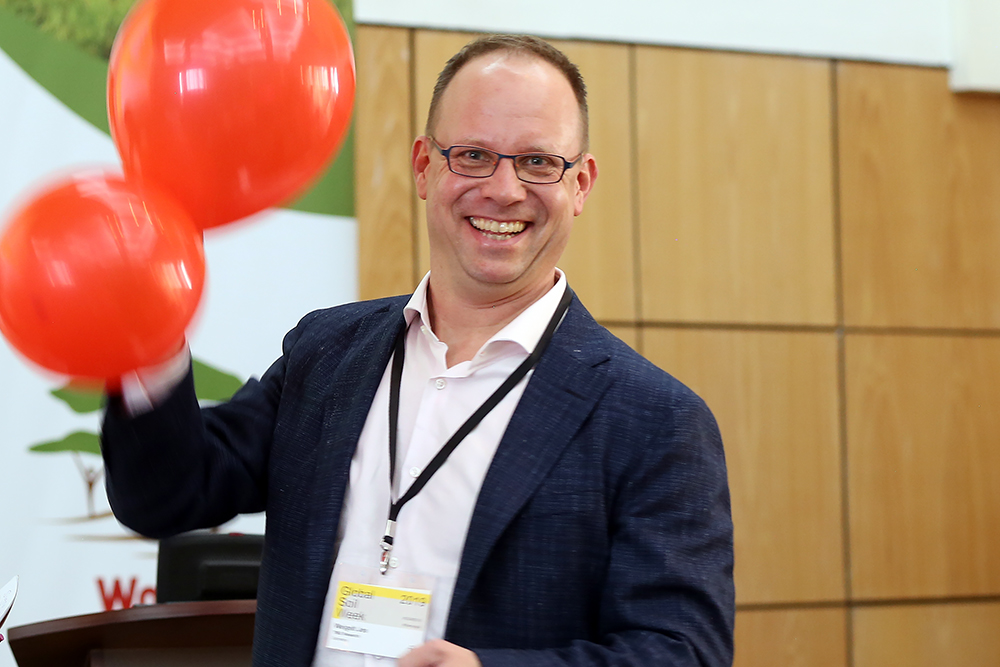
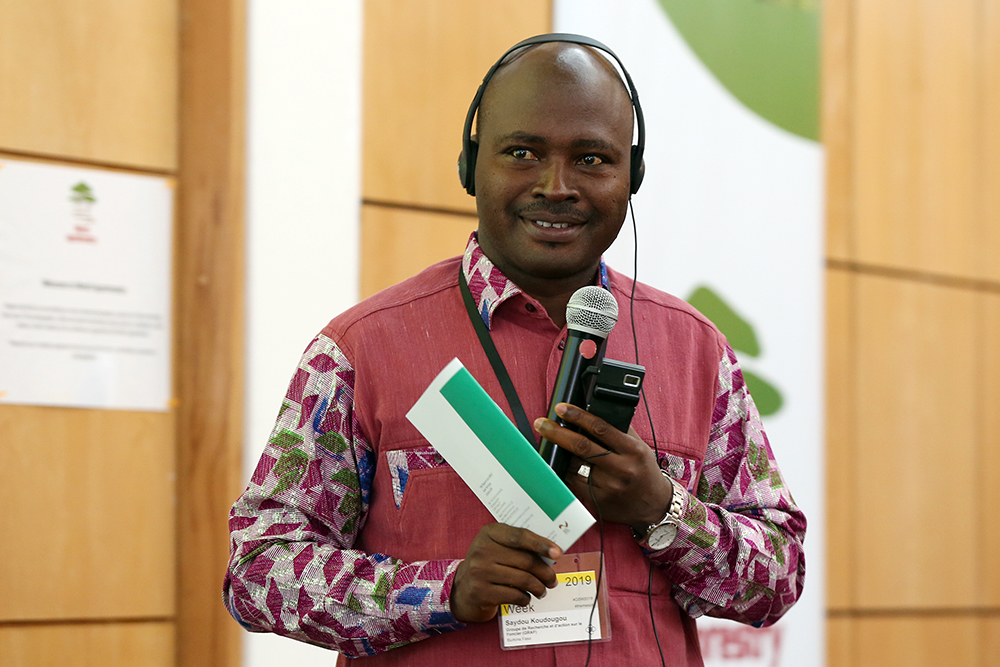
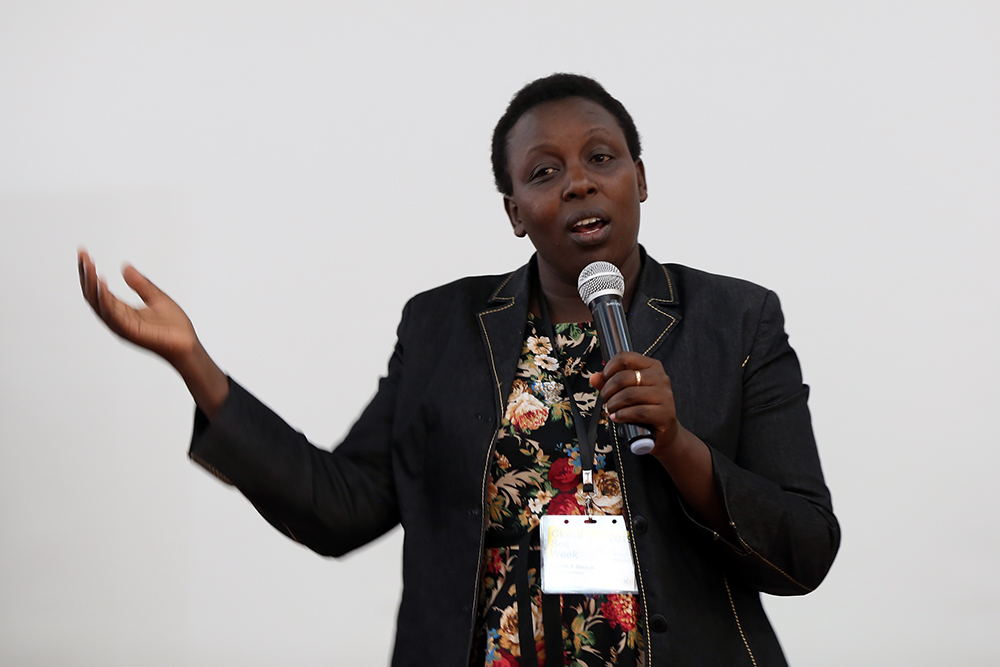
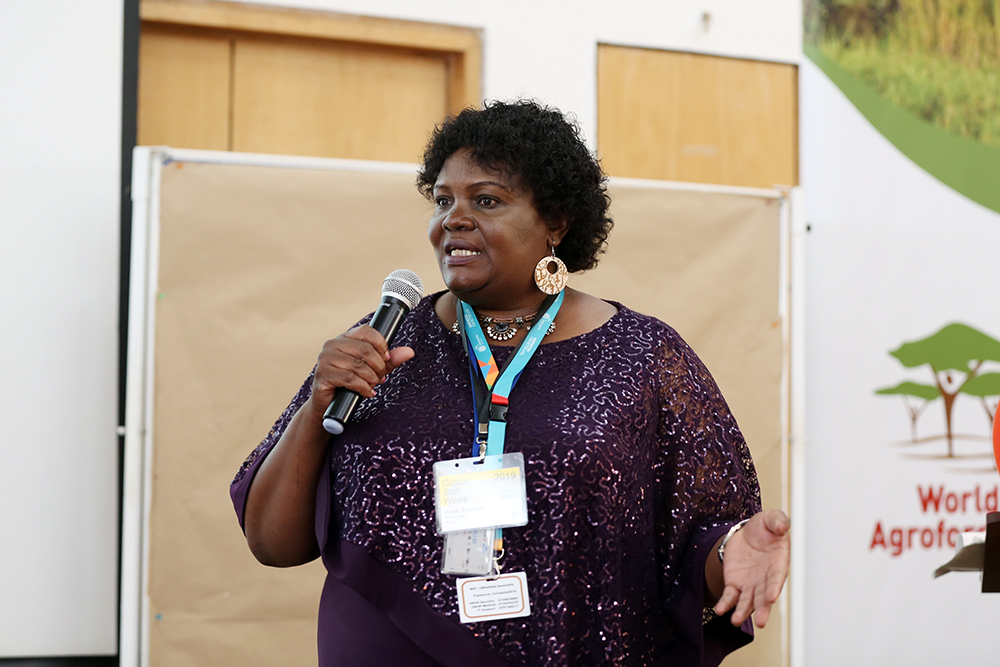
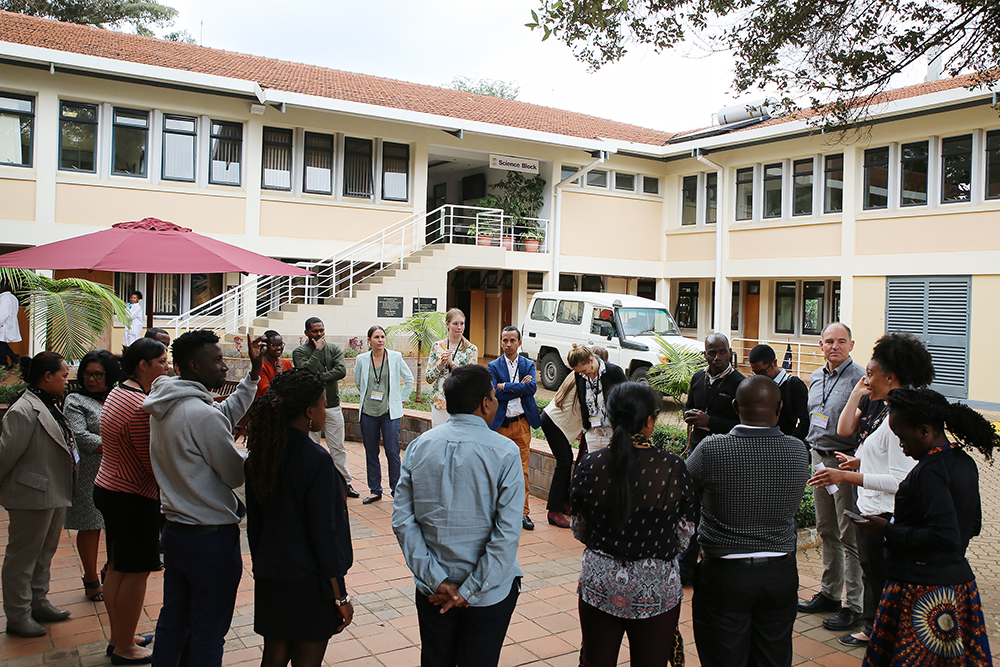
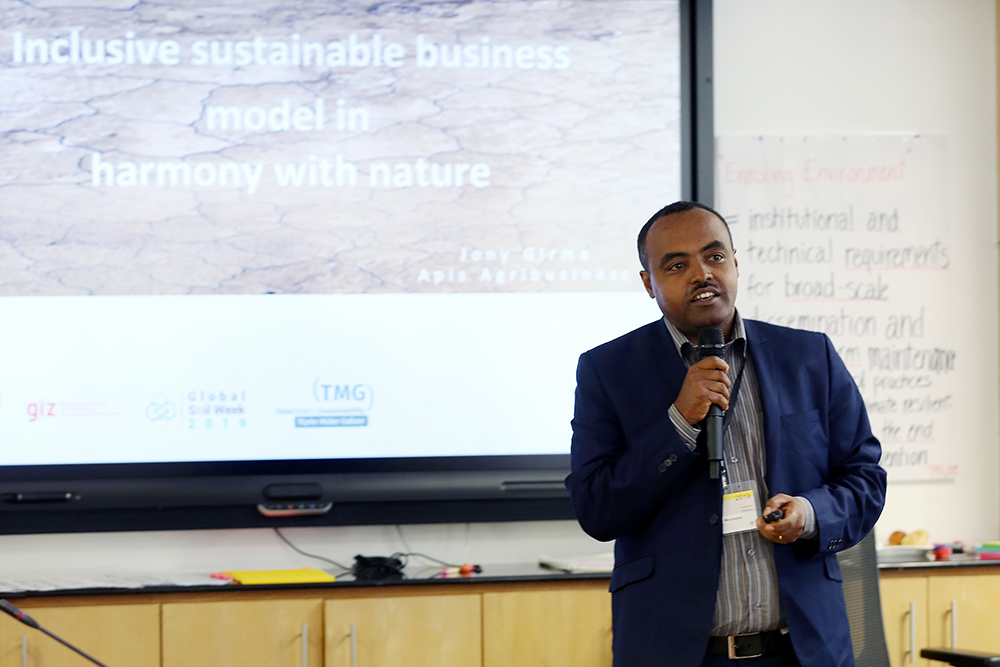
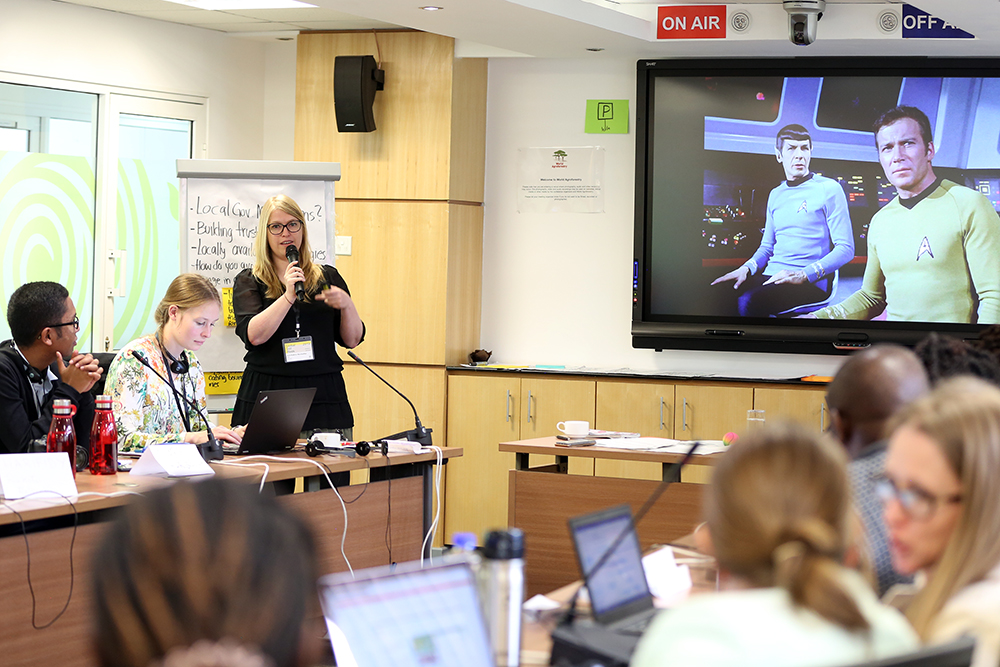
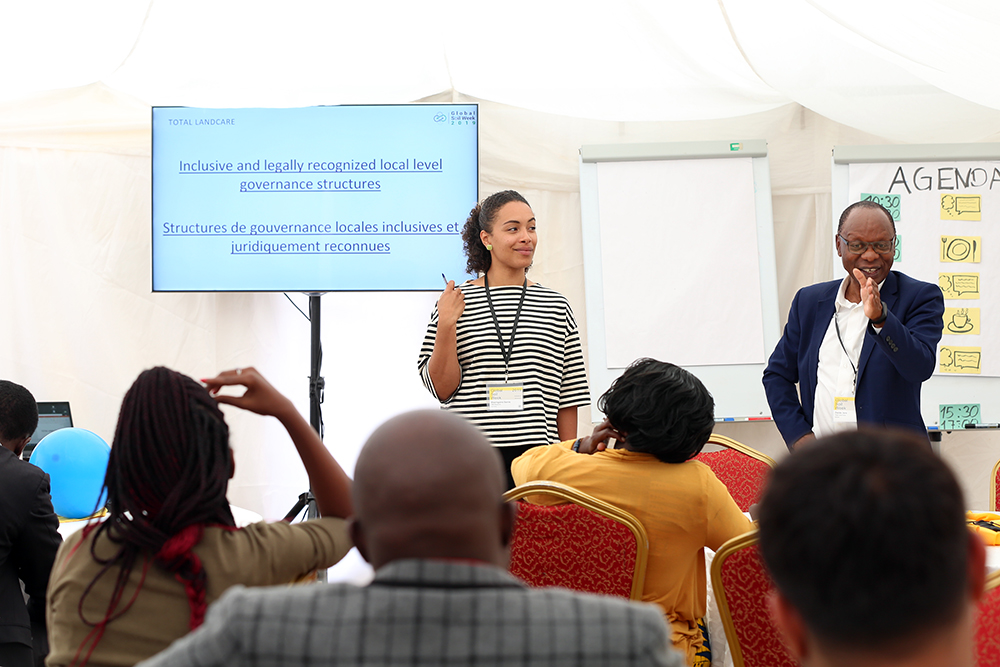
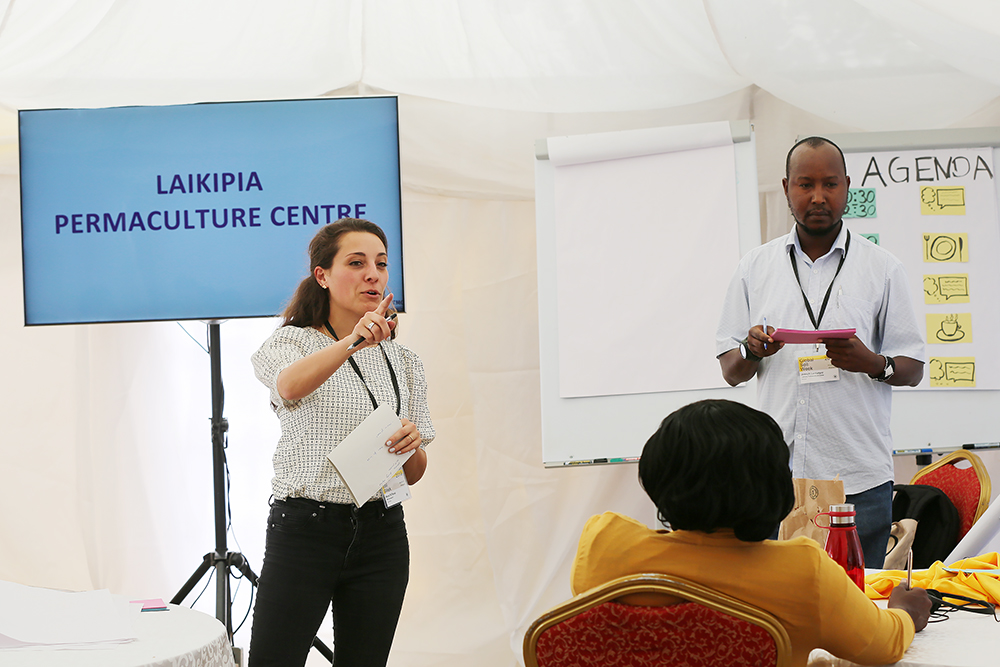
DOWNLOAD ENB+ REPORT
GSW 2019 Resources
IISD ENB/ENB+ Meeting Coverage
- 5th Session of the Africa Regional Forum on Sustainable Development (ARFSD 5), 16-18 April 2019, Marrakech, Morocco
- Economics of Ecosystems & Biodiversity for Agriculture and Food (TEEBAgriFood) Global Symposium 2019, 25-27 February 2019, UN Environment Programme (UNEP) Headquarters, Nairobi, Kenya
- 17th Session of the Committee for the Review of the Implementation of the Convention (CRIC 17) to the UN Convention to Combat Desertification (UNCCD), 28-30 January 2019, Georgetown, Guyana
- Global Symposium on Soil Pollution (GSOP18), 2-4 May 2018, Headquarters of the UN Food and Agriculture Organization (FAO), Rome, Italy
- International Conference on “Working Across Sectors to Halt Deforestation and Increase Forest Area,”, 20-22 February 2018, FAO Headquarters, Rome, Italy
- GSW 2017, 22-24 May 2017, Berlin, Germany
- 1st African Soil Seminar, 28-30 November 2016, Nairobi, Kenya
- GSW 2015 19-23 April 2015, Berlin, Germany
- GSW 2013 27-31 October 2013, Berlin, Germany
- GSW 2012 18-22 November 2012, Berlin, Germany
IISD Resources
- LAND-L - A News and Announcement List on Land Policy Issue
- SDG - A Mailing List for News on Sustainable Development Policy
- SDG Update Newsletter - A compilation of news, commentary and upcoming events published on the SDG Knowledge Hub
- SDG Knowledge Hub - An Online Resource Center for News and Commentary Regarding the Implementation of the United Nations’ 2030 Agenda for Sustainable Development, including all 17 Sustainable Development Goals (SDGs)
- Linkages Update - International Environment and Sustainable Development News